Oct 11, 2019 | Non categorizzato
Every Christian has a “mission” in his or her community. It may be to create a united family, to educate young people, to engage in politics and work, to care for vulnerable people, to bring the light and wisdom of the Gospel to culture or to live a life consecrated to God for the service of others. Holidays My husband and I have different ways of relaxing. I like sports and swimming but he likes to visit new places and museums. This year, as the holidays approached, I felt more than ever the need to rest and recover my strength, but a voice inside me kept telling me not to express and impose my preferences, but rather to adapt to what my husband would like. But he also tried to do the same with me. This meant that both of us were detached from our personal projects and this made our holidays more beautiful and restful than ever before. (B.S. – USA) Setting an example A young migrant man who was trying to sell socks knocked on my door. We were talking and I was trying to get to know him a little when a neighbour of mine passed by. I knew this neighbour had a negative attitude towards migrants but, to my surprise, she invited him to come to her house too because she had something for him. The next day I heard that she had given him shoes and medicine, and she had also promised to provide further support. I really wouldn’t have expected that! (C.V. – Italy) Serving others Our son suffered from depression. We couldn’t help him no matter how we tried and eventually he ran away. One summer afternoon he decided to end his own life. I felt a deep sense of guilt and thought I was being punished. However, slowly, with the support of the parish community, I began to pray and I made myself available to people in need. Sometimes, I offered practical help, a word shared or a smile. One day a mother came to me. She had lost a child just as I had. I told her how I was trying to fill that void by putting myself at the service of others. Although she was not a believer, she too found a certain serenity by doing the same. (G.F. – Italy) From enemy to sister One of my nursing colleagues did everything possible to make my life difficult. Her actions made me suffer. One day, I went to work with a bouquet of flowers and offered them to her with a smile. I will never forget her expression of amazement. It was the beginning of a new phase in our relationship. Now we have become like sisters. (Annamaria – Italy)
Edited by Chiara Favotti

Oct 9, 2019 | Non categorizzato
As Peru continues to welcome thousands of refugees, mostly Venezuelan, Gustavo Clarià reflects on the Focolare’s response. I was familiar with the content of Pope Francis’ ‘Message for the 105th Word Day of Migrants and Refugees 2019’. But listening to it being read to a hundred or so migrants, mainly from Venezuela, was something else! The words resonated in a new way, some paragraphs in particular, and it touched me deeply.  I was meeting many of these people for the first time, as they arrived at the Focolare’s “Fiore Centre” in Lima, Peru, which is active in receiving migrants during the current situation. I listened to them explain why they had left their own country, with what suffering, often going through the anguish of leaving a spouse, children or elderly parents behind, their efforts – often futile – to help those relatives by sending money back. They spoke of their loneliness, their experiences of rejection and discrimination, of being condemned by local people for ‘stealing our jobs’, of continually being regarded with distrust and suspicion. They helped me understand the Pope’s message from a new perspective and to recognise its importance more clearly. I started to see what lies behind the so-called migrant phenomenon. According to statistics, 70.8 million people have been forced to flee their countries around the world, of these nearly 26 million are refugees. It’s a shocking number. Pope Francis concentrates the response to the migrant challenge into four verbs: welcome, protect, promote and integrate. They do not apply only to migrants and refugees. They apply to everyone, as the Pope goes on to explain, “the Church’s mission( is) to all those living in the existential peripheries” including “migrants, especially those who are most vulnerable”.
I was meeting many of these people for the first time, as they arrived at the Focolare’s “Fiore Centre” in Lima, Peru, which is active in receiving migrants during the current situation. I listened to them explain why they had left their own country, with what suffering, often going through the anguish of leaving a spouse, children or elderly parents behind, their efforts – often futile – to help those relatives by sending money back. They spoke of their loneliness, their experiences of rejection and discrimination, of being condemned by local people for ‘stealing our jobs’, of continually being regarded with distrust and suspicion. They helped me understand the Pope’s message from a new perspective and to recognise its importance more clearly. I started to see what lies behind the so-called migrant phenomenon. According to statistics, 70.8 million people have been forced to flee their countries around the world, of these nearly 26 million are refugees. It’s a shocking number. Pope Francis concentrates the response to the migrant challenge into four verbs: welcome, protect, promote and integrate. They do not apply only to migrants and refugees. They apply to everyone, as the Pope goes on to explain, “the Church’s mission( is) to all those living in the existential peripheries” including “migrants, especially those who are most vulnerable”.  The Pope’s full message was read to our group by Silvano Roggero, who is the Venezuelan son of Italian immigrants and a member of the Focolare’s International Commission for Migrants . Koromoto, from Venezuela, expressed his reaction, “We got here through the Lutheran Church. At first we were so frightened about what would happen to us and what we would find. But they gave us such a generous welcome, we were made to feel like family, like we do today among you here with the Focolare”. I saw such gratitude to the county which has welcomed them in, a sincere desire to integrate themselves, while still keeping strong ties with their roots. I’ve understood their anxiety to help the loved ones they have left behind in their home country and to repay the help they have received. Our day together continued in a family atmosphere with a celebratory lunch, accompanied by some of them singing songs from their homelands. We all got to know each other better and hope to meet up again, Peruvians and Venezuelans (and others) , as we continue to vitalize the four verbs proposed by Pope Francis.
The Pope’s full message was read to our group by Silvano Roggero, who is the Venezuelan son of Italian immigrants and a member of the Focolare’s International Commission for Migrants . Koromoto, from Venezuela, expressed his reaction, “We got here through the Lutheran Church. At first we were so frightened about what would happen to us and what we would find. But they gave us such a generous welcome, we were made to feel like family, like we do today among you here with the Focolare”. I saw such gratitude to the county which has welcomed them in, a sincere desire to integrate themselves, while still keeping strong ties with their roots. I’ve understood their anxiety to help the loved ones they have left behind in their home country and to repay the help they have received. Our day together continued in a family atmosphere with a celebratory lunch, accompanied by some of them singing songs from their homelands. We all got to know each other better and hope to meet up again, Peruvians and Venezuelans (and others) , as we continue to vitalize the four verbs proposed by Pope Francis.
Gustavo E. Clariá
http://w2.vatican.va/content/francesco/it/messages/migration/documents/papa-francesco_20190527_world-migrants-day-2019.html
Oct 8, 2019 | Non categorizzato
Tonadico in the Dolomite mountains: “Aim high” – voices and faces from the European Mariapolis. People of all ages, from East and West, had an important experience of openness, knowledge of different cultures and dialogue in Europe.
https://vimeo.com/363570650

Oct 6, 2019 | Non categorizzato
300 telephone conversations made by Chiara Lubich during conference calls with Focolare communities worldwide have been edited into one volume. Maria Caterina Atzori, one of the steering committee members entrusted with the “Works of Chiara Lubich”, at the Chiara Lubich Centre in Rocca di Papa (Rome), is interviewed about this book. Conversations is the second volume in the series “Works of Chiara Lubich”. The first volume, “Words of Life”, was published by the New City Press, in collaboration with the Chiara Lubich Centre, in 2017. Can you tell us more about this second volume?  In the book “Conversations” there are 285 spiritual thoughts, which Chiara Lubich wrote between 1981 and 2004. She shared them personally with Focolare communities in various parts of the world during telephone conference calls made from time to time. These rich thoughts speak about life and delineate a spiritual journey in its various stages, lived in the light of the charism of unity. Chiara traces a path to collective holiness, one that opens a new road marked by its communitarian dimension and that leads us to God “together” with our neighbour. She was the first one to embark on this journey, but at the same time she was joined by those, who were led by her example and guided by her “telephone calls”. They accepted her invitation to set out together on this “Holy Journey” of life, an expression Chiara used to define this journey which recalls Psalm 83. Has Chiara Lubich created a “new literary genre”? Chiara had no intention of creating a new literary genre. In fact, the texts in this volume were not meant for a written publication. This came later on. Initially, New City Press published them in small booklets, as they were widely requested not only by Focolare members, but also by others who met the Charism of Unity. These texts were written one at a time; they were written to be “spoken”, to be transmitted through the use of the telephone set. The novum of their “literary genre” lies in the fact that during each telephone call the speaker managed to create an immediate dialogue with her listeners; she formed a family worldwide, a family united in its commitment to walk the “Holy Journey” of life together. Later on, these same texts were put together for publication. So, in this sense, one can say that “Conversations” brought to life a new literary genre: a genre that combines word, communicative methodology and life, and establishes an intimate and profound dialogue between the author and her interlocutors, in a broader sense between broadcaster and listener, writer and reader. What are the characteristics of these texts? The text of each telephone call is presented in the book as a letter. Although each one is contextualized in time and space, yet it is still aims at establishing direct contact with its new readers, who are addressed with the opening words: “Dear all”. These “conversations” are still happening, not through the telephone set but through the pages of a book. Chiara uses a language rich in warmth and colour; that goes well with both young and old, people from different social backgrounds. From time to time, she engages in contemporary reality, interprets man’s life in the light of the Charism of Unity, recounts her experience about the thought she wants to transmit, interacts with her interlocutors, proposes a motto to be lived till the next telephone appointment (in the book: till the next letter). She expresses her spiritual thought through concrete daily images, familiar to her interlocutors. Frequently, she uses similarities, metaphors and slogans that are lively and easy to remember. Thus, her message is clear, engaging and “easy” to live. And each of these texts continues to invite the reader to live the message. We have been told that the “Opera omnia” (the complete work) of the Focolari foundress is to be published in a series of volumes. The first one was “Words of Life”, and now we have the second one. May we know what are the next scheduled publications? We prefer to speak about “Opere” (works) rather than about “Opera omnia”. In fact, the documentary material signed by Chiara Lubich is very substantial and there might be further acquisitions. This material needs to be sorted out and catalogued, a process that takes quite a long time. However, we already have the possibility of editing a corpus of works, drawn from both published and unpublished material, that offer the legacy of her thought in a systematic way. The series “Works of Chiara Lubich” is to meant to achieve this. It will consist of 14 volumes, organized into three main thematic areas:1.The Person; 2. Spirituality (the first two volumes published by New City Press, Words of Life and Conversations, are part of this second section); 3. Work (the next volume, which will contain speeches in the civil and ecclesial spheres, falls under this third section. It is work in progress, expected to be finished within the next year). Are these texts only published in Italian? Are there any publications in other languages? The volume Words of Life is currently being translated into English. We hope that Words of Life and Conversations will soon be translated into several languages. Both the individual spiritual thoughts and the comments on the Words of Life have already been translated into various languages for immediate communication with non-Italians; so we hope that the volumes of the series “Works of Chiara Lubich” will soon be in bookshops in a wide range of languages.
In the book “Conversations” there are 285 spiritual thoughts, which Chiara Lubich wrote between 1981 and 2004. She shared them personally with Focolare communities in various parts of the world during telephone conference calls made from time to time. These rich thoughts speak about life and delineate a spiritual journey in its various stages, lived in the light of the charism of unity. Chiara traces a path to collective holiness, one that opens a new road marked by its communitarian dimension and that leads us to God “together” with our neighbour. She was the first one to embark on this journey, but at the same time she was joined by those, who were led by her example and guided by her “telephone calls”. They accepted her invitation to set out together on this “Holy Journey” of life, an expression Chiara used to define this journey which recalls Psalm 83. Has Chiara Lubich created a “new literary genre”? Chiara had no intention of creating a new literary genre. In fact, the texts in this volume were not meant for a written publication. This came later on. Initially, New City Press published them in small booklets, as they were widely requested not only by Focolare members, but also by others who met the Charism of Unity. These texts were written one at a time; they were written to be “spoken”, to be transmitted through the use of the telephone set. The novum of their “literary genre” lies in the fact that during each telephone call the speaker managed to create an immediate dialogue with her listeners; she formed a family worldwide, a family united in its commitment to walk the “Holy Journey” of life together. Later on, these same texts were put together for publication. So, in this sense, one can say that “Conversations” brought to life a new literary genre: a genre that combines word, communicative methodology and life, and establishes an intimate and profound dialogue between the author and her interlocutors, in a broader sense between broadcaster and listener, writer and reader. What are the characteristics of these texts? The text of each telephone call is presented in the book as a letter. Although each one is contextualized in time and space, yet it is still aims at establishing direct contact with its new readers, who are addressed with the opening words: “Dear all”. These “conversations” are still happening, not through the telephone set but through the pages of a book. Chiara uses a language rich in warmth and colour; that goes well with both young and old, people from different social backgrounds. From time to time, she engages in contemporary reality, interprets man’s life in the light of the Charism of Unity, recounts her experience about the thought she wants to transmit, interacts with her interlocutors, proposes a motto to be lived till the next telephone appointment (in the book: till the next letter). She expresses her spiritual thought through concrete daily images, familiar to her interlocutors. Frequently, she uses similarities, metaphors and slogans that are lively and easy to remember. Thus, her message is clear, engaging and “easy” to live. And each of these texts continues to invite the reader to live the message. We have been told that the “Opera omnia” (the complete work) of the Focolari foundress is to be published in a series of volumes. The first one was “Words of Life”, and now we have the second one. May we know what are the next scheduled publications? We prefer to speak about “Opere” (works) rather than about “Opera omnia”. In fact, the documentary material signed by Chiara Lubich is very substantial and there might be further acquisitions. This material needs to be sorted out and catalogued, a process that takes quite a long time. However, we already have the possibility of editing a corpus of works, drawn from both published and unpublished material, that offer the legacy of her thought in a systematic way. The series “Works of Chiara Lubich” is to meant to achieve this. It will consist of 14 volumes, organized into three main thematic areas:1.The Person; 2. Spirituality (the first two volumes published by New City Press, Words of Life and Conversations, are part of this second section); 3. Work (the next volume, which will contain speeches in the civil and ecclesial spheres, falls under this third section. It is work in progress, expected to be finished within the next year). Are these texts only published in Italian? Are there any publications in other languages? The volume Words of Life is currently being translated into English. We hope that Words of Life and Conversations will soon be translated into several languages. Both the individual spiritual thoughts and the comments on the Words of Life have already been translated into various languages for immediate communication with non-Italians; so we hope that the volumes of the series “Works of Chiara Lubich” will soon be in bookshops in a wide range of languages.
by Anna Lisa Innocenti
Oct 4, 2019 | Non categorizzato
The Focolare Movement rejoices with Chiara Amirante and the New Horizons Community she founded, at Pope Francis’ surprise visit to their ‘Sky Citadel’ (‘Cittadella Cielo’) near Frosinone, Italy. “If I start answering your questions, it will be words, words, words… which I think would risk spoiling the sacredness of what you have just said. Because what you’ve spoken are not words but lives, your own lives. Your stories. Your journeys. Quests, yes, but quests of the whole person, flesh and spirit together”. This was Pope Francis’ spontaneous response to five young members of the New Horizons Community who had presented their own powerful testimonies of suffering and rebirth during the Pope’s private visit to the Community’s centre in Frosinone province, Italy on 24 September. “Each of your stories speaks of a ‘glance’, a ‘look’,” continued the Pope. “At a certain moment, you felt a glance, unlike any other: a look gazing on you with love. I too know that glance. With that glance, Someone takes you by the hand and lets you go, without taking away your freedom”. The Pope arrived in the ‘Sky Citadel’ at 9.30 in the morning to an emotional and joyful welcome. It is the headquarters of New Horizons, which offers a Gospel-based approach to healing and self-knowledge that has succeeded in allowing many young people to escape from the infernal tunnel of suffering and dependency and in their own turn become witnesses of hope for other troubled youth. This “fruitful witness” was highlighted by the Pope in his talk. “Your witnessing is sowing, and what you are sowing is not an idea but fact: the fact that God is love, that God loves us, that God is always seeking us out every moment, that God is close to us, that God takes us by the hand to save us. (…) We are women and men of the Magnificat, of Mary’s song, proclaiming how God has looked upon me, has gently touched me, has spoken to me, has won. And He is with me. He has taken me by the hand and brought me out of hell”. The Pope spent time greeting Community members and Centre leaders from Italy and abroad who were gathering for their annual central Assembly. He celebrated Mass with them, shared lunch and planted an olive tree in the garden. There were representatives from all five ‘citadels’ of the New Horizons Community, founded by Chiara Amirante. Chiara got to know the Focolare spirituality as a child, and knew Focolare foundress Chiara Lubich personally. As a young person, Chiara Amirante was struck by the sufferings of the young people she met on the streets and listened to their cries for help to escape from the hell of all they were living through. In response, she felt called to create a community which could welcome them. And New Horizons Community was born. This recent visit by the Pope follows his telephone call and video message in June this year to congratulate the community on its 25 years of life. In her welcome to Pope Francis, Chiara recalled the beginnings of her adventure, when, in contact with ‘people of the night’, she was guided by the certainty that encountering “the Risen Christ would bring life once more to where I could only see death”. In 1994 the first community was formed in Trigoria, Rome. In 1997 a community offering welcome and formation was established in Piglio, Frosinone province, Italy. Today there are 228 centres of reception, formation and re-integration, and many initiatives promoting solidarity, human and social development in different countries. In 2006 Chiara launched “Knights of the Light” (“Cavalieri della Luce”) for people who commit to living the Gospel to renew the world with the revolution of love, and in particular to witness the joy of the Risen Christ to the most desperate in our societies. So far, more than 700,000 have accepted this challenge. As Chiara explained to Pope Francis, “There are new forms of poverty which constitute a real emergency, causing millions of ‘invisible’ deaths ignored by the majority” … the use and abuse of alcohol and drugs, anorexia, bulimia, depression, compulsive gaming and gambling, internet-addiction, bullying, sexual addiction and abuses. “Now more than ever,” concluded Chiara, “we feel the urgent need to do everything possible to respond to the unanswered cry of so many”.
Anna Lisa Innocenti
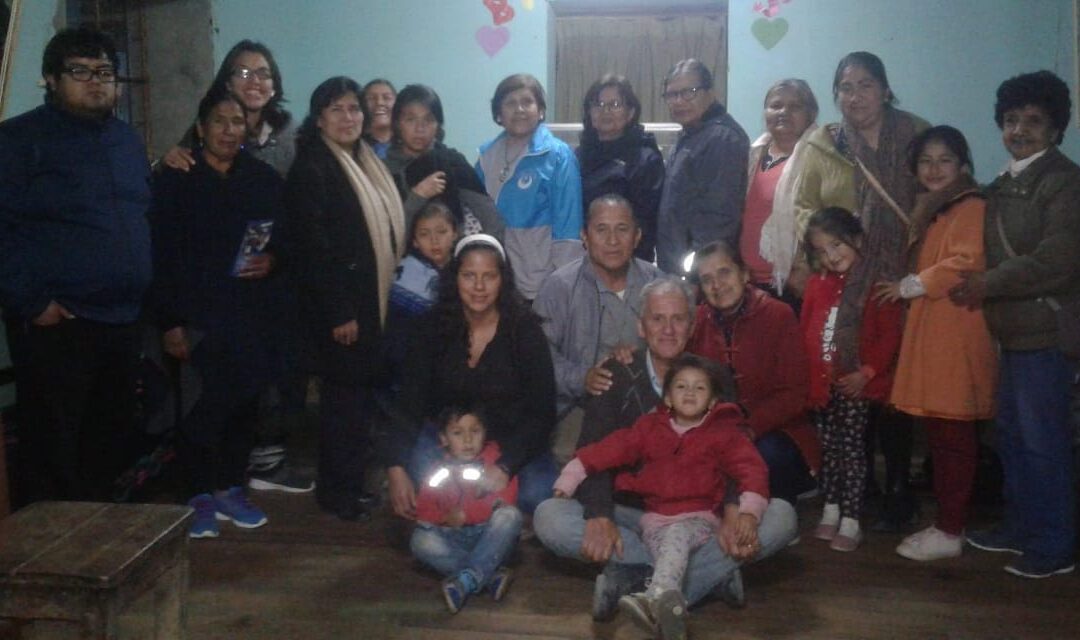
Oct 2, 2019 | Non categorizzato
Only weeks before the Pan-Amazon Synod, Gustavo E. Clariá traveled to a Peruvian village in the Amazon rainforest. He tells the story—not of fires, deforestation, oil companies, or precious-metal seekers—but of Jenny and Javier, who chose to live in the South American Amazon with the desire to bring, as a family, the light of the Gospel to “poorest of the poor.” 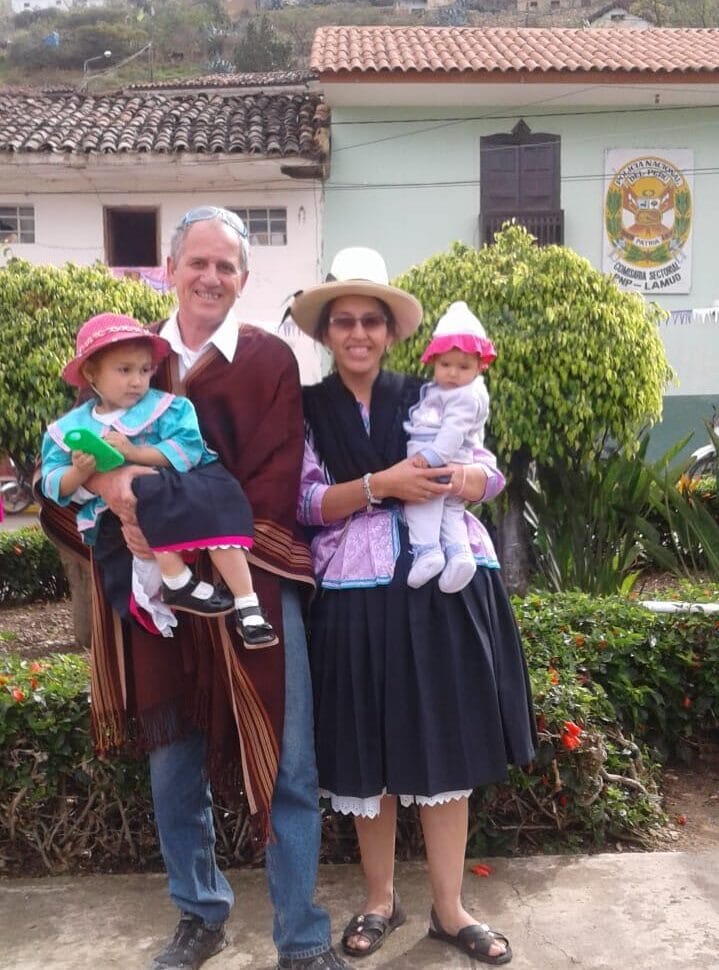 “From Argentina, we decided to move to Lámud, Peru,” said Javier, “the town where Jenny was born, in what is called ‘Ceja de Selva’ (half jungle, half mountain). It’s located near to where the great Marañón and Amazon rivers begin. We wanted to be close to her parents, who are now elderly and in delicate health.” Javier is Argentinian. He met Jenny while she was studying in Rosario, Argentina. They have three daughters, aged 2, 4, and 17. They sold “what little they had” and left for the Amazonas, Peru’s poorest region, 1,600 kilometers from Lima and 14 hours from the nearest Focolare house. Moving from a big city like Rosario to a town with 2,500 residents at 2,300 meters elevation was a big change for the family. “We knew we wouldn’t be making a return trip,” he said. Moving from a big city like Rosario to a town with 2,500 residents, at 2,300 meters elevation, was a big change for the family, and it was especially challenging for Javier. At a young age, both Javier and Jenny met the Focolare’s spirituality of unity; they now wanted to live the Gospel as a family. That’s why “their biggest concern” was to get to a place where they “would be alone,” with no one with whom to share this ideal of unity. They decided to do everything they could to bear witness and proclaim the Gospel with their lives, so that even in the Amazon, a seed of the spirituality of unity would be planted. They decided to live the commandment of reciprocal love so that Jesus would always be spiritually present in their family, according to his promise: “Where two or three are gathered in my name, there am I in their midst” (Mt 18:20). With the conviction that, as Chiara Lubich once said, “one of the fruits of Jesus in the midst is giving birth to a community,” they left for Peru. A few days after arriving, the local bishop visited their town. They introduced themselves as a “Focolare family.” The bishop blessed them and encouraged them to continue in their commitment. They began by touring the periphery of the village by visiting “the poorest of the poor.” They went to people’s houses—if you want to call them that—where they found elderly people who “didn’t even have a decent bed to die in, such was their poverty!” They met many families and children who could afford to eat only once a day. “We would bring them something to eat, hug them, look them in the eye, and give them a word of encouragement,” said Jenny. Sometimes, they would stay two or three days with them, “sharing their pain, their poverty, their brief joys and hopes.”
“From Argentina, we decided to move to Lámud, Peru,” said Javier, “the town where Jenny was born, in what is called ‘Ceja de Selva’ (half jungle, half mountain). It’s located near to where the great Marañón and Amazon rivers begin. We wanted to be close to her parents, who are now elderly and in delicate health.” Javier is Argentinian. He met Jenny while she was studying in Rosario, Argentina. They have three daughters, aged 2, 4, and 17. They sold “what little they had” and left for the Amazonas, Peru’s poorest region, 1,600 kilometers from Lima and 14 hours from the nearest Focolare house. Moving from a big city like Rosario to a town with 2,500 residents at 2,300 meters elevation was a big change for the family. “We knew we wouldn’t be making a return trip,” he said. Moving from a big city like Rosario to a town with 2,500 residents, at 2,300 meters elevation, was a big change for the family, and it was especially challenging for Javier. At a young age, both Javier and Jenny met the Focolare’s spirituality of unity; they now wanted to live the Gospel as a family. That’s why “their biggest concern” was to get to a place where they “would be alone,” with no one with whom to share this ideal of unity. They decided to do everything they could to bear witness and proclaim the Gospel with their lives, so that even in the Amazon, a seed of the spirituality of unity would be planted. They decided to live the commandment of reciprocal love so that Jesus would always be spiritually present in their family, according to his promise: “Where two or three are gathered in my name, there am I in their midst” (Mt 18:20). With the conviction that, as Chiara Lubich once said, “one of the fruits of Jesus in the midst is giving birth to a community,” they left for Peru. A few days after arriving, the local bishop visited their town. They introduced themselves as a “Focolare family.” The bishop blessed them and encouraged them to continue in their commitment. They began by touring the periphery of the village by visiting “the poorest of the poor.” They went to people’s houses—if you want to call them that—where they found elderly people who “didn’t even have a decent bed to die in, such was their poverty!” They met many families and children who could afford to eat only once a day. “We would bring them something to eat, hug them, look them in the eye, and give them a word of encouragement,” said Jenny. Sometimes, they would stay two or three days with them, “sharing their pain, their poverty, their brief joys and hopes.” 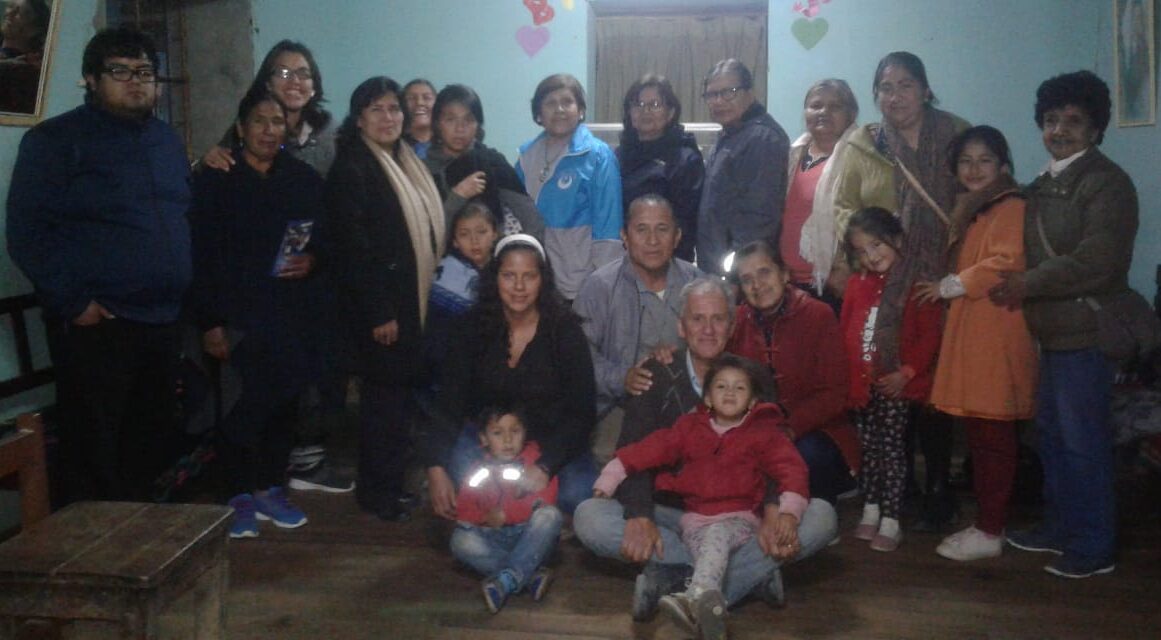 Hopeful that they could help bring to life a small community in their town, they began to organize meetings of the “Word of Life,” but with no success. They changed tactics several times. “We never got discouraged,” said Javier. “We knew that Jesus has his time and the important thing was to stay in the game.” They invited their neighbors again to meet about the Word of God, and gradually some people joined, including some of the mothers of the children in kindergarten with their daughters. They also organized a children’s program. This felt like the beginning to them, a small calling. Then the parish priest asked them to take on the family catechesis of the village and ten other surrounding villages, including some located two hours away. Recently welcomed their first visit from the Focolare community of Talara, a city located 650 kilometers and 12 hours by car from Lámud. It was a visit that marked them in a special way, “a before and after in the life of our community.” Jenny and Javier share in the joy of those who have found their place in the world. “We are few, but something was born!” they say. “We don’t want to set expectations, but we believe that Jesus has a soft spot in his heart for the Amazon, for the poorest of the poor. This is so perhaps because he was also born among the poor, and he stayed with them. We don’t know the roads he wants to take us, but they’re the only ones on which we want to travel! Like Him, we want to give our lives for our people.”
Hopeful that they could help bring to life a small community in their town, they began to organize meetings of the “Word of Life,” but with no success. They changed tactics several times. “We never got discouraged,” said Javier. “We knew that Jesus has his time and the important thing was to stay in the game.” They invited their neighbors again to meet about the Word of God, and gradually some people joined, including some of the mothers of the children in kindergarten with their daughters. They also organized a children’s program. This felt like the beginning to them, a small calling. Then the parish priest asked them to take on the family catechesis of the village and ten other surrounding villages, including some located two hours away. Recently welcomed their first visit from the Focolare community of Talara, a city located 650 kilometers and 12 hours by car from Lámud. It was a visit that marked them in a special way, “a before and after in the life of our community.” Jenny and Javier share in the joy of those who have found their place in the world. “We are few, but something was born!” they say. “We don’t want to set expectations, but we believe that Jesus has a soft spot in his heart for the Amazon, for the poorest of the poor. This is so perhaps because he was also born among the poor, and he stayed with them. We don’t know the roads he wants to take us, but they’re the only ones on which we want to travel! Like Him, we want to give our lives for our people.”
Gustavo E. Clariá

Sep 30, 2019 | Non categorizzato
The annual meeting of the delegates of the Focolare Movement concluded in Rocca di Papa. Among the priorities for 2020 is a new commitment in the field of human rights and justice, the centenary of Chiara Lubich and the next General Assembly of the Focolare Movement. 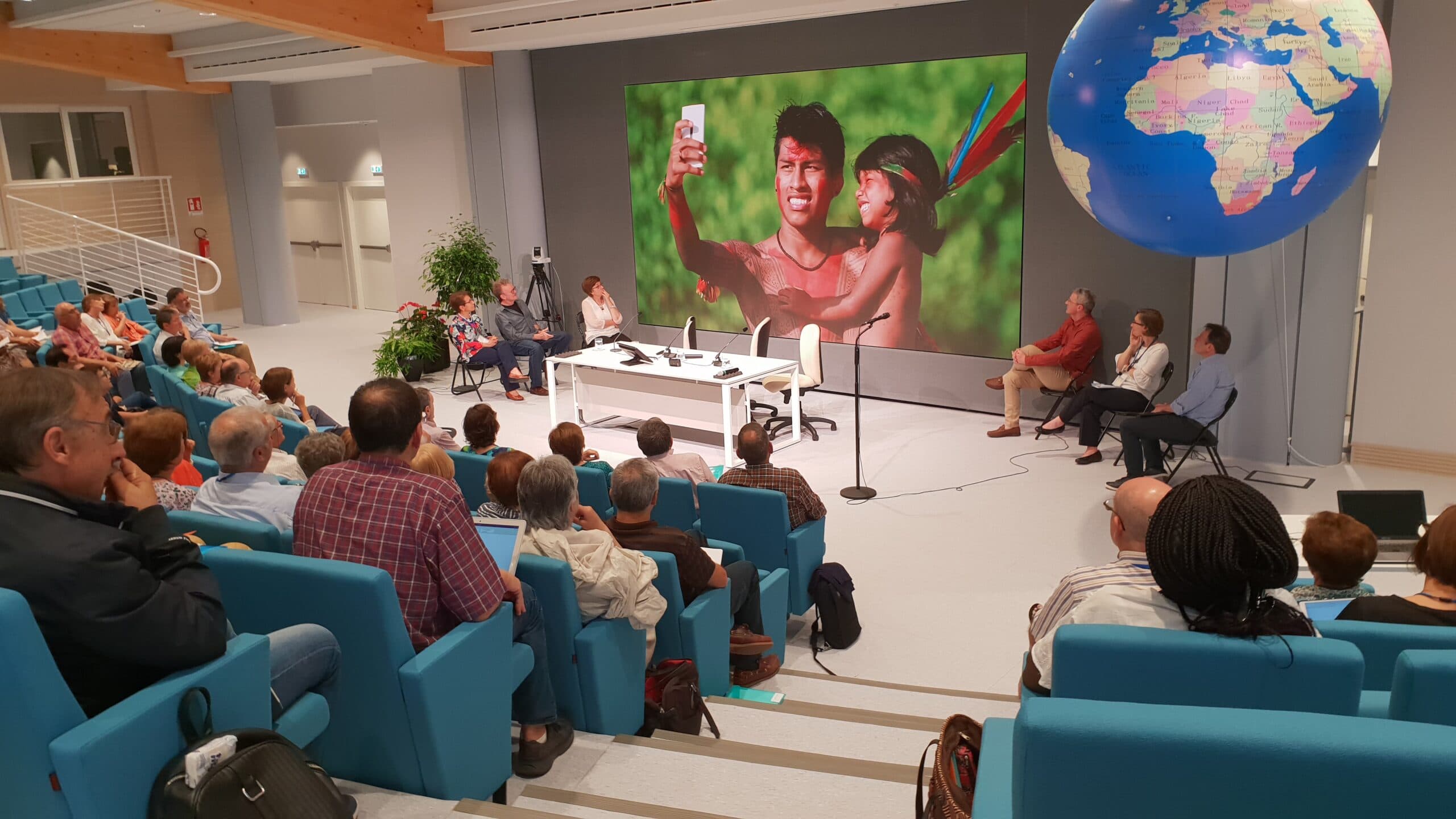 Finally we made it! An extended communion among the participants of the annual meeting between the delegates of the Focolare Movement worldwide and the General Council, was held from September 14th to 28th 2019 in Rocca di Papa. It highlighted the principle that had got the conference underway and that will be the guiding principle for the entire Movement in the coming year: everything that is done in the name of the Movement in the ecclesial, social or cultural fields, as an activity for children or adults, families or those engaged in politics, makes sense only if it is characterized and guided by the presence of Jesus in the midst of those who love one other as He taught. This does not mean that the Focolare is becoming entirely spiritual. In fact, the first part of the meeting was dedicated to gathering the life of the Movement. With the distinctiveness of the different ecclesial, political and cultural environments in which the Movement is located, social and educational projects were presented, as well as the commitment to refugees in areas receiving little media coverage, artistic initiatives and actions promoting human dignity.
Finally we made it! An extended communion among the participants of the annual meeting between the delegates of the Focolare Movement worldwide and the General Council, was held from September 14th to 28th 2019 in Rocca di Papa. It highlighted the principle that had got the conference underway and that will be the guiding principle for the entire Movement in the coming year: everything that is done in the name of the Movement in the ecclesial, social or cultural fields, as an activity for children or adults, families or those engaged in politics, makes sense only if it is characterized and guided by the presence of Jesus in the midst of those who love one other as He taught. This does not mean that the Focolare is becoming entirely spiritual. In fact, the first part of the meeting was dedicated to gathering the life of the Movement. With the distinctiveness of the different ecclesial, political and cultural environments in which the Movement is located, social and educational projects were presented, as well as the commitment to refugees in areas receiving little media coverage, artistic initiatives and actions promoting human dignity. 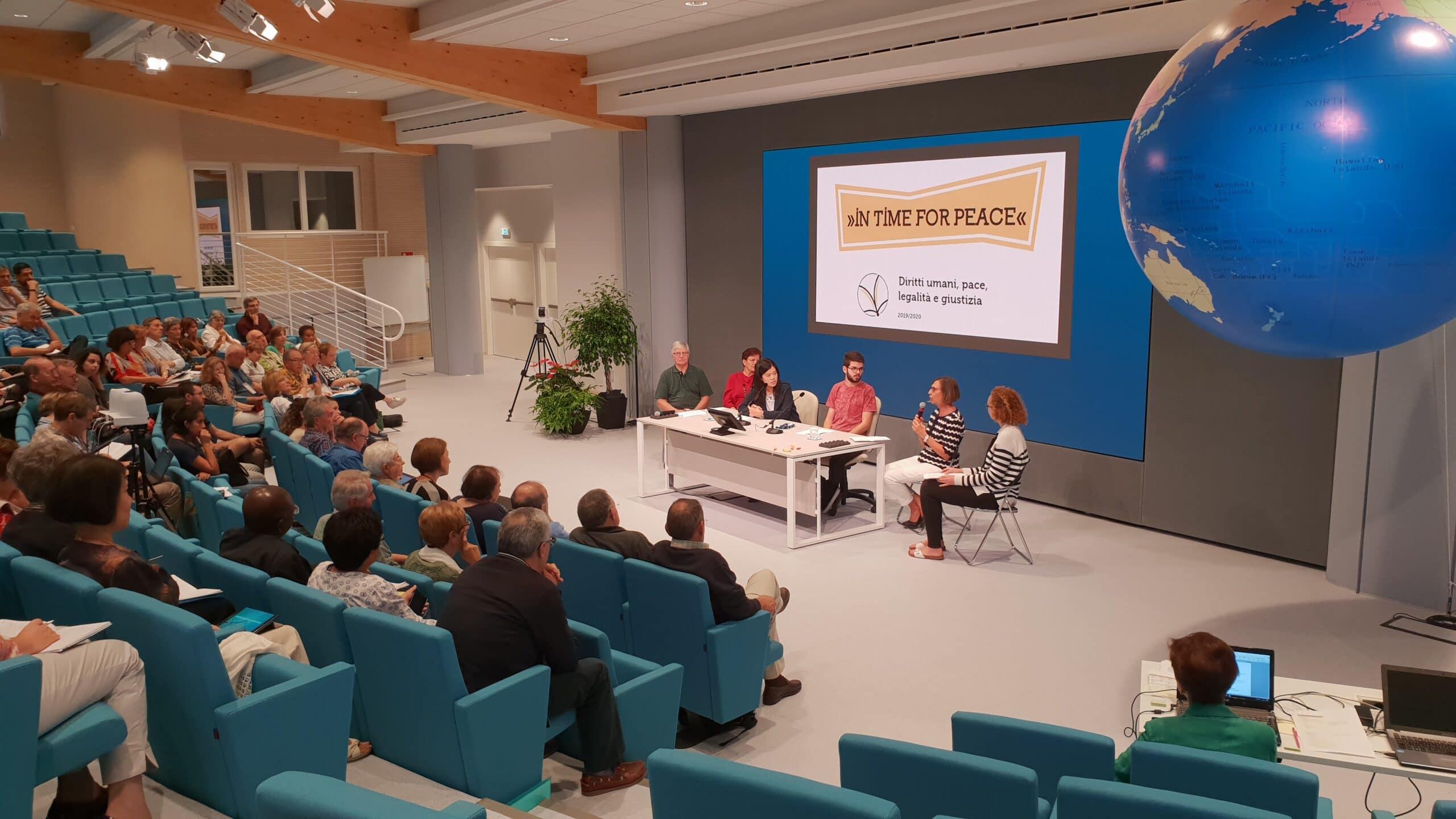 During this exchange it was clear that the reform, which has been underway for some years under the title “New Set Up”, is bearing its first fruits. In many parts of the world, leaner structures seem to release new creative energy. New forms of proclamation and evangelization have developed, synergies between the various branches of the Movement and with other ecclesial and lay realities. There is also a new balance being achieved in the relationship between central government and geographical areas, that is, between global sensitivities and local action. While respecting the diversity present within the Movement – such as those of cultures, confessions, strengths and resources- in this balance it has been possible to identify together the priorities to be addressed in the coming year 2019/2020.
During this exchange it was clear that the reform, which has been underway for some years under the title “New Set Up”, is bearing its first fruits. In many parts of the world, leaner structures seem to release new creative energy. New forms of proclamation and evangelization have developed, synergies between the various branches of the Movement and with other ecclesial and lay realities. There is also a new balance being achieved in the relationship between central government and geographical areas, that is, between global sensitivities and local action. While respecting the diversity present within the Movement – such as those of cultures, confessions, strengths and resources- in this balance it has been possible to identify together the priorities to be addressed in the coming year 2019/2020. 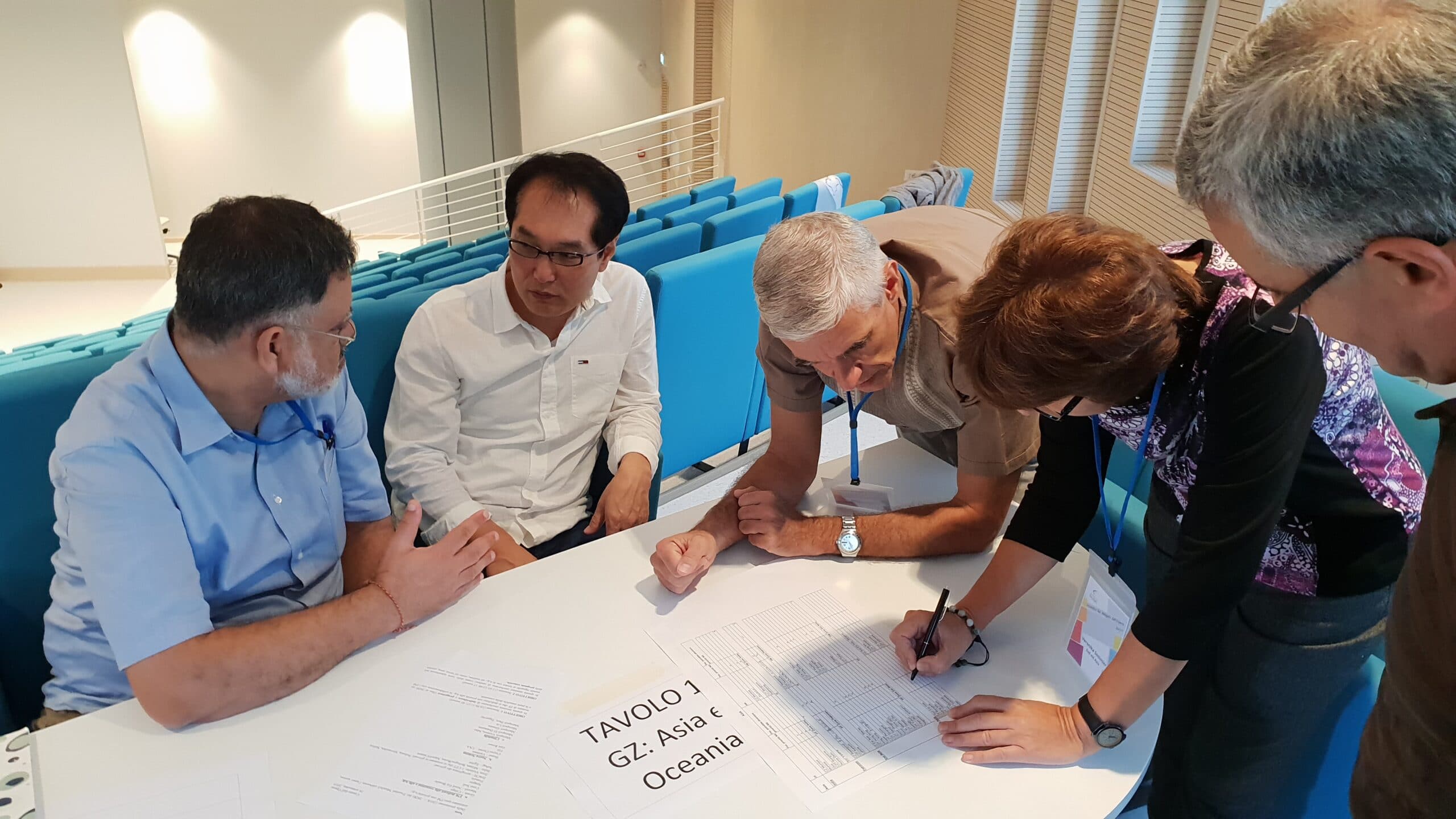 Under the motto “In time for Peace” the Movement will commit itself in the fields of human rights, peace, legality and justice following a pathway proposed by young people. Efforts will be made to try and involve other people and institutions to take concrete and important steps in these fields. The centenary of the birth of Chiara Lubich will take centre stage in the coming months. The activities that begin on December 7th , 2019 with the title “Celebrate to meet” want to offer the possibility of a living encounter with the foundress and her charism. Finally, 2020 will also be marked by the General Assembly of the Movement , which takes place every six years, offering new perspectives. “But everything we do has a single purpose” – said Maria Voce, President of the Focolare, at the end of this meeting. “We want to transform the world, giving visibility to the presence of Christ in it, through the mutual love among us”. This is – so to speak – the typical “soft skill” of the Focolare, its “transversal expertise” . It is not produced with methodologies and programming, but it is the foundation of everything , the starting and finishing line.
Under the motto “In time for Peace” the Movement will commit itself in the fields of human rights, peace, legality and justice following a pathway proposed by young people. Efforts will be made to try and involve other people and institutions to take concrete and important steps in these fields. The centenary of the birth of Chiara Lubich will take centre stage in the coming months. The activities that begin on December 7th , 2019 with the title “Celebrate to meet” want to offer the possibility of a living encounter with the foundress and her charism. Finally, 2020 will also be marked by the General Assembly of the Movement , which takes place every six years, offering new perspectives. “But everything we do has a single purpose” – said Maria Voce, President of the Focolare, at the end of this meeting. “We want to transform the world, giving visibility to the presence of Christ in it, through the mutual love among us”. This is – so to speak – the typical “soft skill” of the Focolare, its “transversal expertise” . It is not produced with methodologies and programming, but it is the foundation of everything , the starting and finishing line.
Joachim Schwind
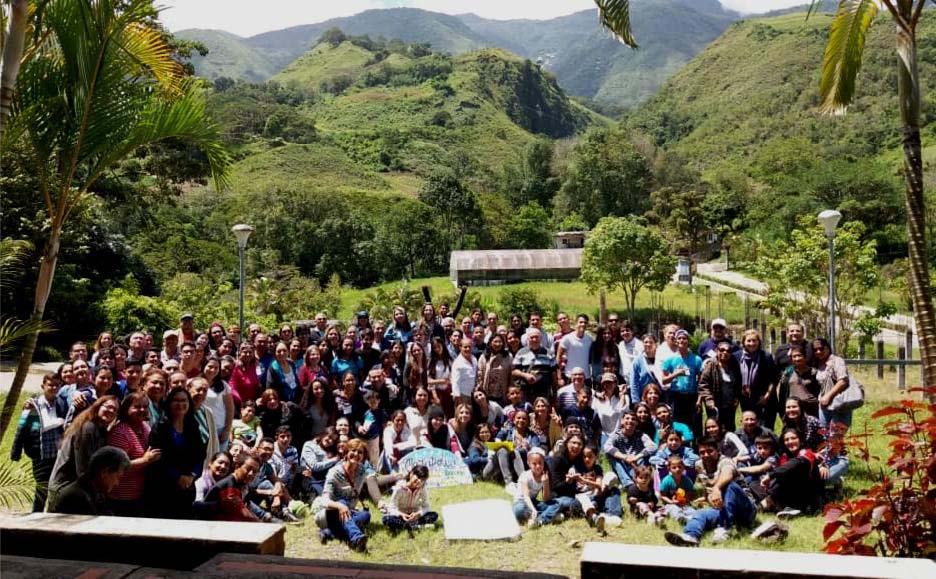
Sep 29, 2019 | Non categorizzato
This year once again the Focolare Movement all over the world invited men and women, young and old, people of every background to experience the Mariapolis – whereby a temporary ‘city’ is created which is built on fraternity. 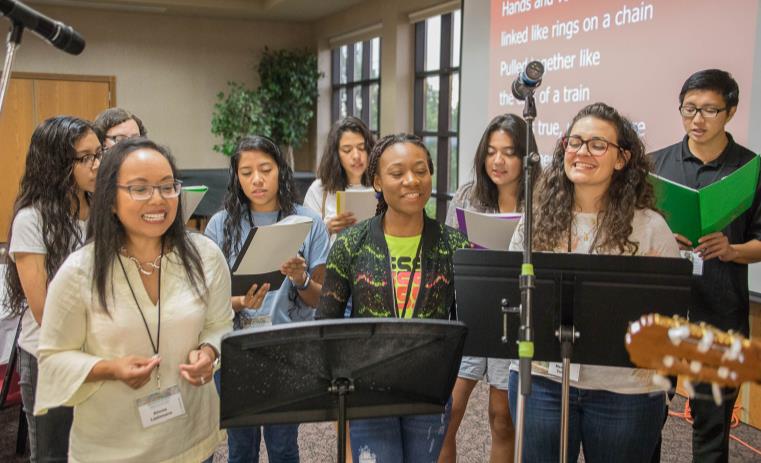 While the settings may be different, the experience is the same: the Mariapolis is the typical expression of the Focolare Movement where those who participate in these gatherings – usually held in the summer – are invited to experience a few days of utopia: a society based on living the reciprocal love of the Gospel. A very big European Mariapolis was held in Fiera di Primiero this summer where the very first Mariapolis took place sixty years earlier. It ran in four stages, each lasting a week. In many other parts of the world the Mariapoli attracted people from very different backgrounds. This year there were 235 Mariapoli around the world with bringing together around 46,000 people. Our editorial team has received letters and reports from Wales, Vietnam, Peru, Canada, Finland, Italy, Bulgaria and Brazil.
While the settings may be different, the experience is the same: the Mariapolis is the typical expression of the Focolare Movement where those who participate in these gatherings – usually held in the summer – are invited to experience a few days of utopia: a society based on living the reciprocal love of the Gospel. A very big European Mariapolis was held in Fiera di Primiero this summer where the very first Mariapolis took place sixty years earlier. It ran in four stages, each lasting a week. In many other parts of the world the Mariapoli attracted people from very different backgrounds. This year there were 235 Mariapoli around the world with bringing together around 46,000 people. Our editorial team has received letters and reports from Wales, Vietnam, Peru, Canada, Finland, Italy, Bulgaria and Brazil. 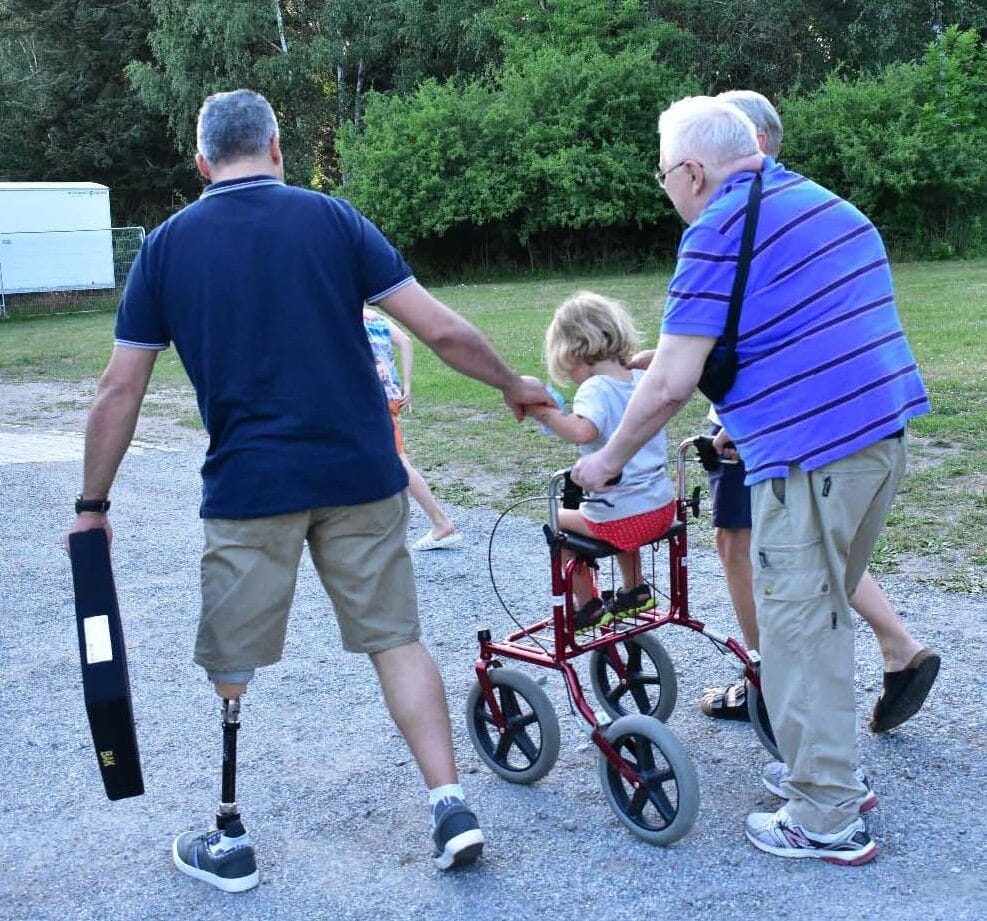 In Turkey the Mariapolis took place in Şile, a little town on the Black Sea near Istanbul, a resort that provided a holiday atmosphere which everyone appreciated. The 70 participants came from Ankara, Iskenderun, Izmir as well as other countries. The main theme – personal and collective sanctity – was developed by presenting some of Turkey’s best-known saints: St. John Chrysostom, St. Ephrem, St. Helena and St. Thecla whose lives have had a great influence on the Church of the early times. In Kerrville, Texas (USA), the theme of the Holy Spirit and the Church was explored which has guided the life of the Focolare Movement all over the world this year. Out of the 350 people present, 100 were participating for the first time in a Mariapolis perhaps because studying the Church was particularly attractive to people at a time that has been marked by so many scandals and sufferings. The same subject, presented with an focus on ecumenism, was at the heart of the Mariapolis in Sweden held in Marielund-Stockholm with Lutherans and Catholics taking part. Two Buddhists as well as those who do not profess a
In Turkey the Mariapolis took place in Şile, a little town on the Black Sea near Istanbul, a resort that provided a holiday atmosphere which everyone appreciated. The 70 participants came from Ankara, Iskenderun, Izmir as well as other countries. The main theme – personal and collective sanctity – was developed by presenting some of Turkey’s best-known saints: St. John Chrysostom, St. Ephrem, St. Helena and St. Thecla whose lives have had a great influence on the Church of the early times. In Kerrville, Texas (USA), the theme of the Holy Spirit and the Church was explored which has guided the life of the Focolare Movement all over the world this year. Out of the 350 people present, 100 were participating for the first time in a Mariapolis perhaps because studying the Church was particularly attractive to people at a time that has been marked by so many scandals and sufferings. The same subject, presented with an focus on ecumenism, was at the heart of the Mariapolis in Sweden held in Marielund-Stockholm with Lutherans and Catholics taking part. Two Buddhists as well as those who do not profess a 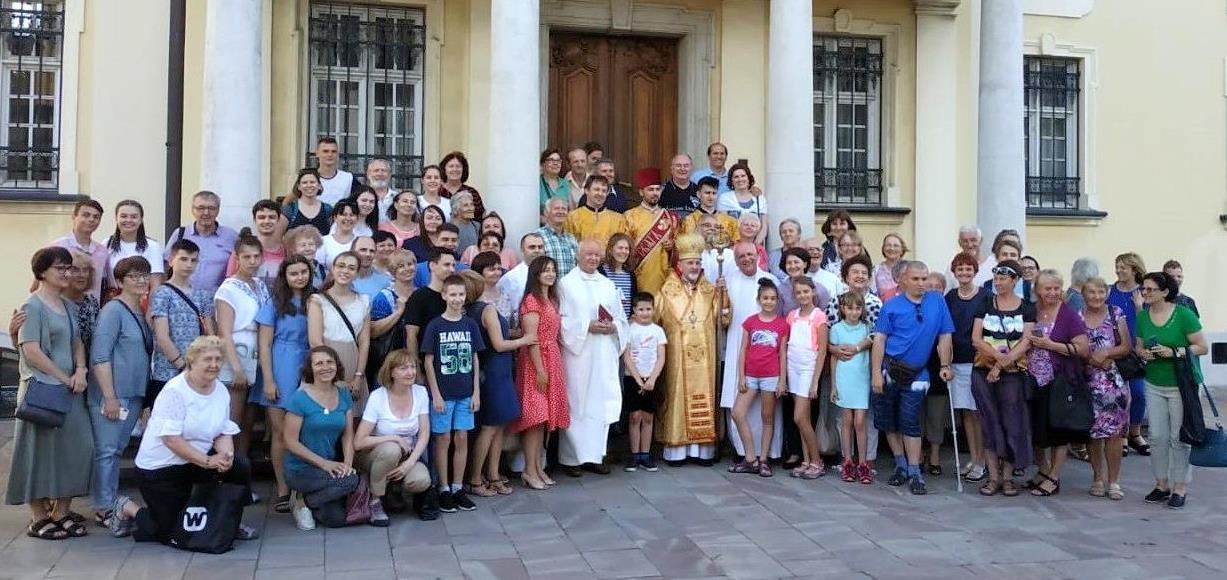 specific faith were also present. The participants came from different cities in Sweden and a good representation from Norway. Despite the diversity it was possible to deepen the idea of “the Holy Spirit as the one who is the Church’s vital energy and who gives each person the particular grace to realize their own calling through the unity of all the members of the mystical body of Christ”, in their own words. The participation of newer generations to the program gave the Mariapolis in Lviv, Ukraine, a joyful touch. Young adults, teenagers and children were entrusted with the preparation and running of an entire day which they did in a lively and engaging way. At the start of each day it was the children who “taught” the adults by telling them how they had lived the words of the Gospel of the previous day. The Mariapolis in Penang, Malaysia, was characterized by the diversity of languages, cultures, ethnic backgrounds and people travelling great distances with participants from Singapore, for example, travelling 700 km. “The effort made to keep mutual love alive among us” – they wrote – “and thus give space to the presence of Jesus in our midst, the commitment to face and overcome difficulties and the willingness to give up one’s own ideas, made this undertaking possible”.
specific faith were also present. The participants came from different cities in Sweden and a good representation from Norway. Despite the diversity it was possible to deepen the idea of “the Holy Spirit as the one who is the Church’s vital energy and who gives each person the particular grace to realize their own calling through the unity of all the members of the mystical body of Christ”, in their own words. The participation of newer generations to the program gave the Mariapolis in Lviv, Ukraine, a joyful touch. Young adults, teenagers and children were entrusted with the preparation and running of an entire day which they did in a lively and engaging way. At the start of each day it was the children who “taught” the adults by telling them how they had lived the words of the Gospel of the previous day. The Mariapolis in Penang, Malaysia, was characterized by the diversity of languages, cultures, ethnic backgrounds and people travelling great distances with participants from Singapore, for example, travelling 700 km. “The effort made to keep mutual love alive among us” – they wrote – “and thus give space to the presence of Jesus in our midst, the commitment to face and overcome difficulties and the willingness to give up one’s own ideas, made this undertaking possible”.  The Mariapolis of Boconó in the west of Venezuela was intended to offer participants the opportunity to rest, in view of the difficulties of daily life which is exhausting because of extended periods without electricity, interminable queues for fuel and economic hardship. At least twice as many people as were expected responded to this attractive offer – both physically and financially. However, on the first night, a hurricane with hail, rain, trees being uprooted and strong winds caused a power cut that lasted until the end of the Mariapolis which meant that everything collapsed: no water in the bathrooms, no facilities for cooking or no way to keep the food cool. However, through the deepening of spirituality, the invincible love of God became a real, existential experience: they found a way to cook with wood, a neighbour offered the participants their generator and everyone’s attention for the needs of others grew. “God is never outdone in generosity,” they wrote at the conclusion of this wonderful experience.
The Mariapolis of Boconó in the west of Venezuela was intended to offer participants the opportunity to rest, in view of the difficulties of daily life which is exhausting because of extended periods without electricity, interminable queues for fuel and economic hardship. At least twice as many people as were expected responded to this attractive offer – both physically and financially. However, on the first night, a hurricane with hail, rain, trees being uprooted and strong winds caused a power cut that lasted until the end of the Mariapolis which meant that everything collapsed: no water in the bathrooms, no facilities for cooking or no way to keep the food cool. However, through the deepening of spirituality, the invincible love of God became a real, existential experience: they found a way to cook with wood, a neighbour offered the participants their generator and everyone’s attention for the needs of others grew. “God is never outdone in generosity,” they wrote at the conclusion of this wonderful experience.
Joachim Schwind

Sep 27, 2019 | Non categorizzato
Twelve songs which are part of the history of this music group become a collection, taken from their world tour “Life”, a tour that will continue in the coming months. Among their plans for the future Gen Rosso will also be involved with delivering courses, educational projects, co-productions and the third edition of “Gen Rosso Music and Arts Village”. 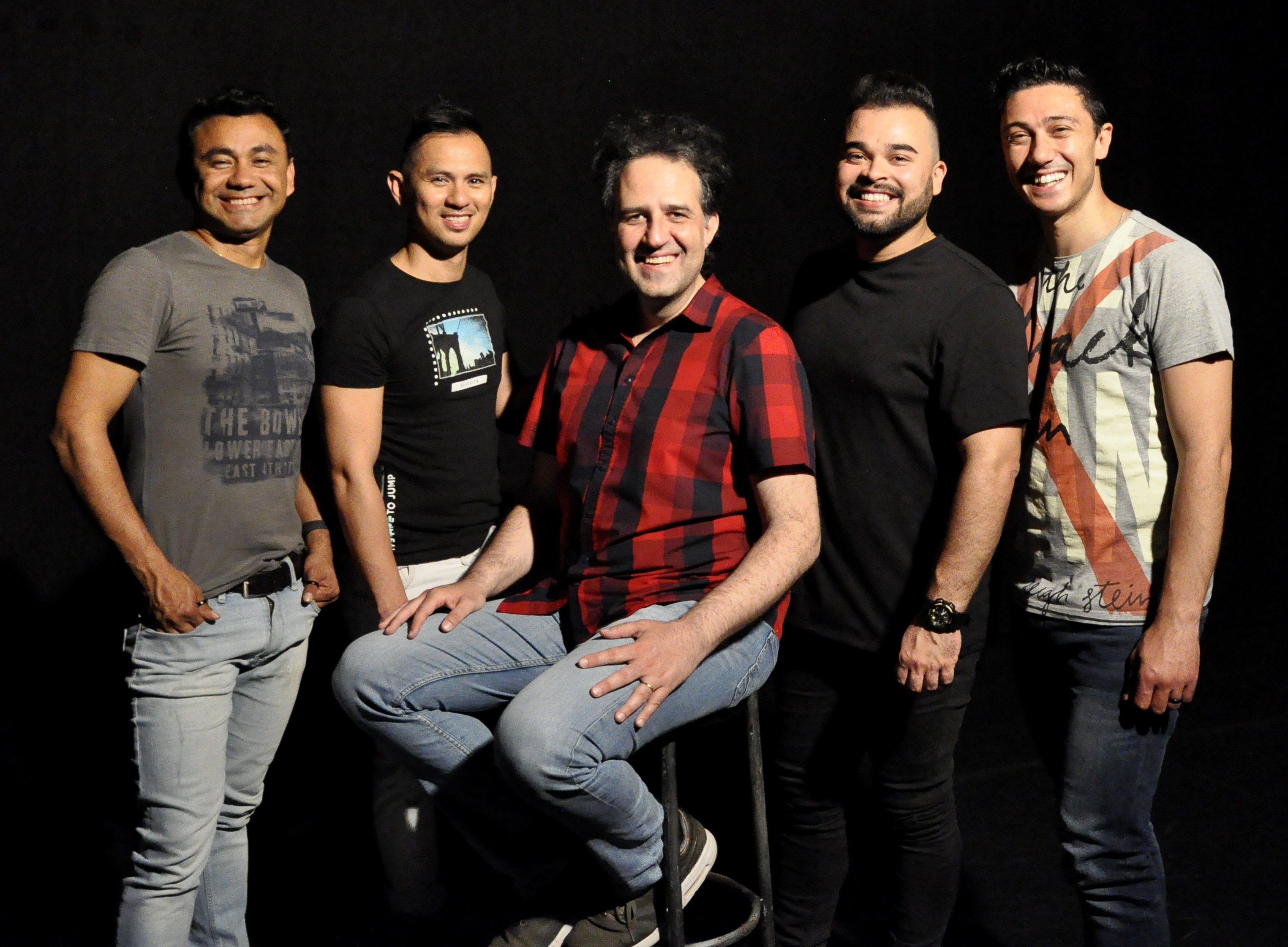 After more than fifty years of life theirs is an artistic proposition capable of continuous renewal. At the same time, they keep the compass fixed on some key points: a life lived under the banner of fraternity, a collaborative production between artists of various nationalities that speaks of unity between peoples and nations, a message that proposes a culture of giving and sharing – attentive to the challenges of our planet. This is Gen Rosso an international music group, made up of musicians and technicians of different vocations from Europe, Asia and Latin America. Recently their “Life” tour became an album with eighteen tracks chosen from the songs recorded by Gen Rosso over the years. We talk about it with one of the group, Michele Sole. – On July 1st your live album from the “LIFE” Tour was released. How was this new album conceived and what are its characteristics? From the autumn of 2018 until today we have had some beautiful concerts all over Italy with our production “LIFE” and since the audiences were enthusiastic, like we were ourselves, from there we had the desire to create a cd ‘Life – live’. Once the recordings made on stage were re-created, we mixed them trying to keep all the energy and emotion that we breathe in our concerts. You can hear the audience singing with us, their applause and their voices, giving the listener the feeling of being right there with us on stage. In short, a real live recording! –
After more than fifty years of life theirs is an artistic proposition capable of continuous renewal. At the same time, they keep the compass fixed on some key points: a life lived under the banner of fraternity, a collaborative production between artists of various nationalities that speaks of unity between peoples and nations, a message that proposes a culture of giving and sharing – attentive to the challenges of our planet. This is Gen Rosso an international music group, made up of musicians and technicians of different vocations from Europe, Asia and Latin America. Recently their “Life” tour became an album with eighteen tracks chosen from the songs recorded by Gen Rosso over the years. We talk about it with one of the group, Michele Sole. – On July 1st your live album from the “LIFE” Tour was released. How was this new album conceived and what are its characteristics? From the autumn of 2018 until today we have had some beautiful concerts all over Italy with our production “LIFE” and since the audiences were enthusiastic, like we were ourselves, from there we had the desire to create a cd ‘Life – live’. Once the recordings made on stage were re-created, we mixed them trying to keep all the energy and emotion that we breathe in our concerts. You can hear the audience singing with us, their applause and their voices, giving the listener the feeling of being right there with us on stage. In short, a real live recording! – 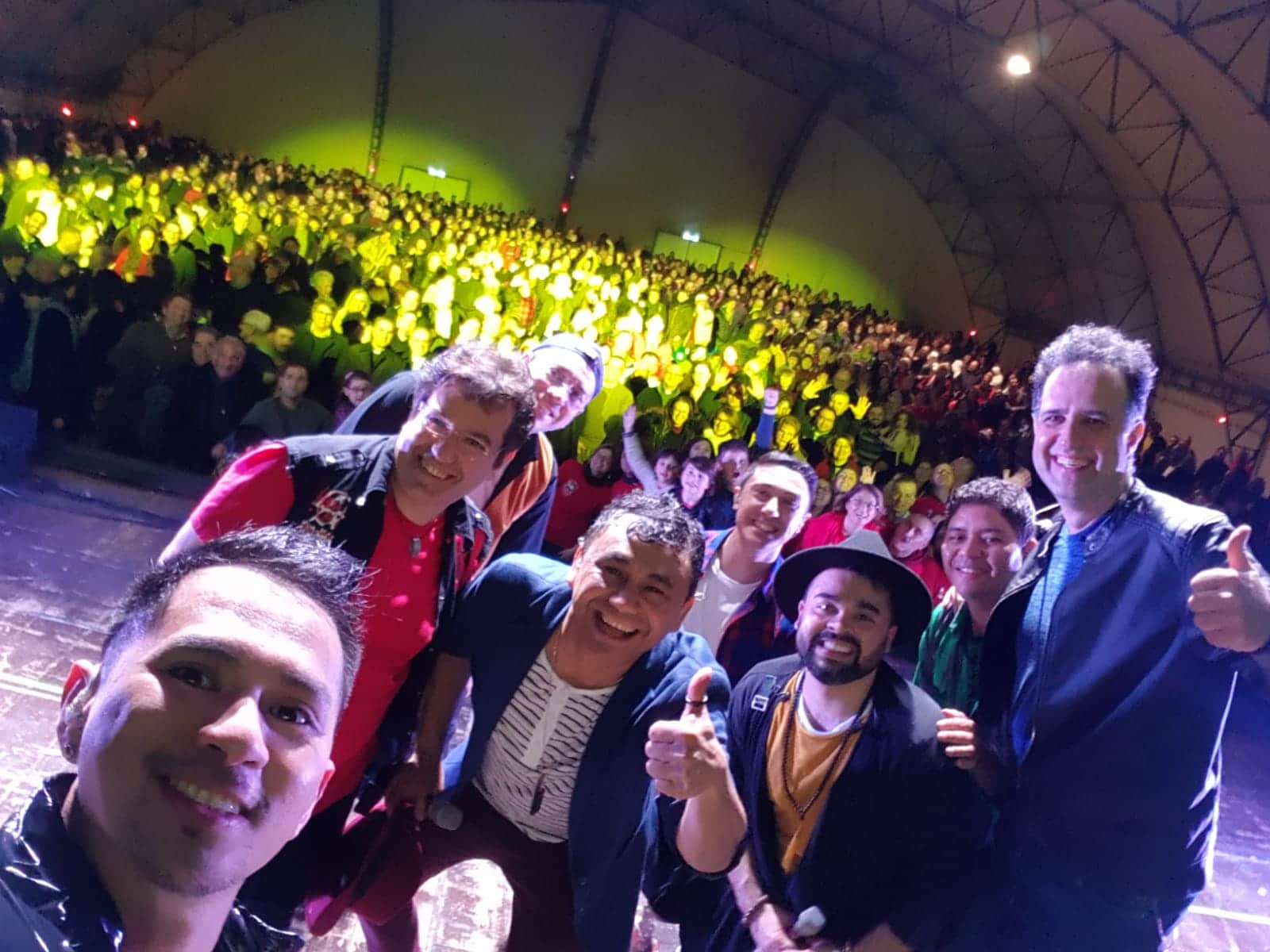 Recently you have created, in the international little town of Loppiano where you are based the “Gen Rosso Music and Arts Village”. What is this and what are the objectives? The “Gen Rosso Music and Arts Village” will be held this year from December 27th 2019 until January 5th 2020, this will be the third edition. It is an artistic experience, the sharing of values from the perspective of the charism of unity. It involves young professionals and students, aged 18 and above, from different disciplines such as music, dance, singing, theatre. The teaching methodology is designed by Gen Rosso tutors together with teachers who have recognized artistic skills and experience. The program includes an in-depth study of specific themes from the art world, the exchange of experiences, creative spaces and practical workshops that will converge in a final performance. You can register at village@genrosso.com. The programme will start on December 27th 2019 and will end on January 5th 2020.
Recently you have created, in the international little town of Loppiano where you are based the “Gen Rosso Music and Arts Village”. What is this and what are the objectives? The “Gen Rosso Music and Arts Village” will be held this year from December 27th 2019 until January 5th 2020, this will be the third edition. It is an artistic experience, the sharing of values from the perspective of the charism of unity. It involves young professionals and students, aged 18 and above, from different disciplines such as music, dance, singing, theatre. The teaching methodology is designed by Gen Rosso tutors together with teachers who have recognized artistic skills and experience. The program includes an in-depth study of specific themes from the art world, the exchange of experiences, creative spaces and practical workshops that will converge in a final performance. You can register at village@genrosso.com. The programme will start on December 27th 2019 and will end on January 5th 2020. 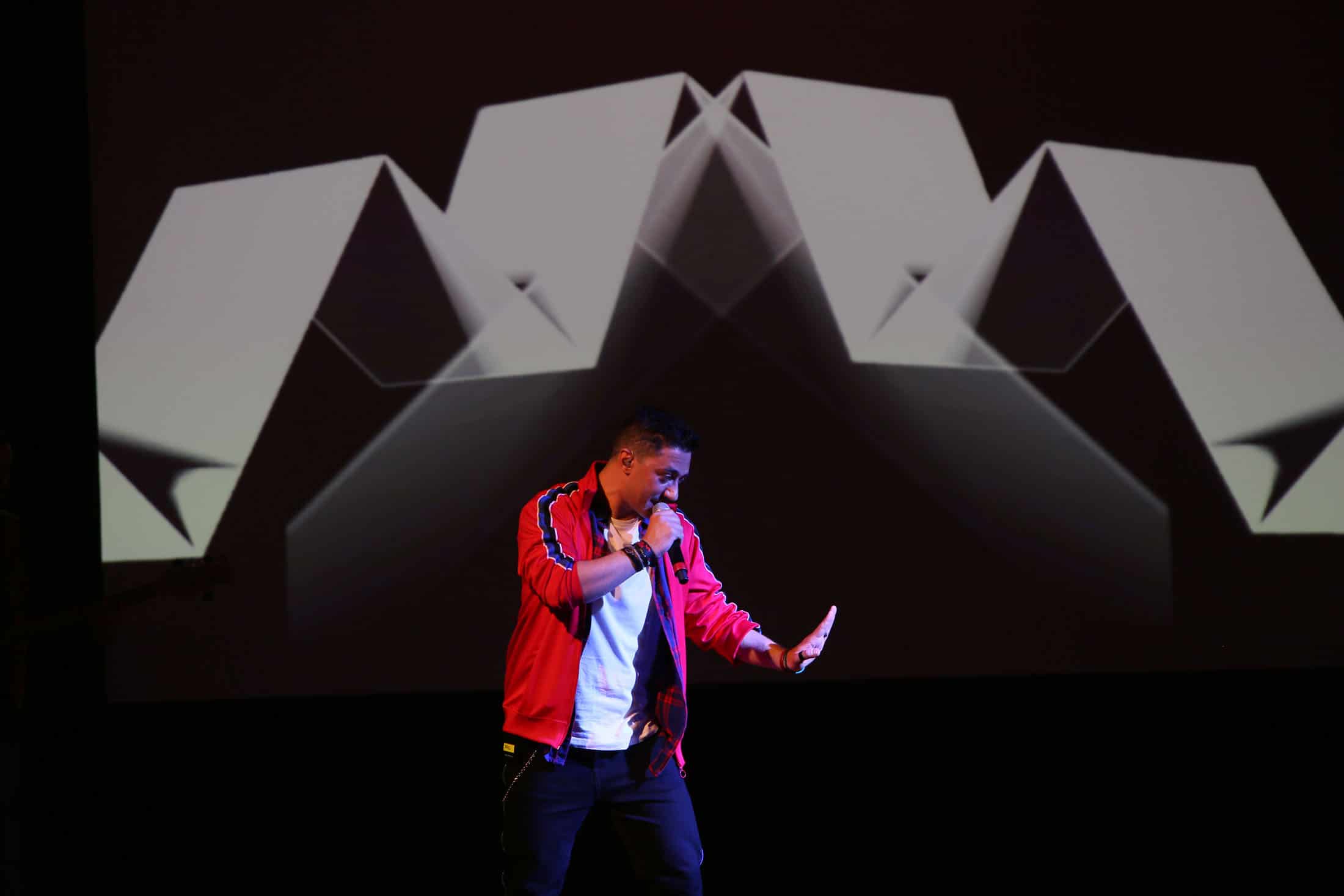 – In your travels, you participate in events that promote peace and friendship between peoples and universal fraternity. Is there a recent one that you remember in particular and why? Yes, in the spring we had the joy of being in Jordan, thanks to “Caritas Jordan”, to carry out the project “Be the change” . We worked with hundreds of students from different social classes, different religions and different nationalities, It is a project to foster dialogue and promote a culture of peace and friendship, with the participants themselves being the promoters of a change in their lives and in their cities for a better future. – What are your plans and future appointments? First of all, we will resume the world tour with the concert “Life” along with educational projects and the inclusion on stage of young people prepared during various workshops. The tour will begin in Italy (September 28th in Venosa; October 12th in Piacenza; October 23rd and 24th in Acerra; October 26th in Prato, November 1st in Teano). Then an Asian tour in Indonesia for almost the entire month of November 2019.
– In your travels, you participate in events that promote peace and friendship between peoples and universal fraternity. Is there a recent one that you remember in particular and why? Yes, in the spring we had the joy of being in Jordan, thanks to “Caritas Jordan”, to carry out the project “Be the change” . We worked with hundreds of students from different social classes, different religions and different nationalities, It is a project to foster dialogue and promote a culture of peace and friendship, with the participants themselves being the promoters of a change in their lives and in their cities for a better future. – What are your plans and future appointments? First of all, we will resume the world tour with the concert “Life” along with educational projects and the inclusion on stage of young people prepared during various workshops. The tour will begin in Italy (September 28th in Venosa; October 12th in Piacenza; October 23rd and 24th in Acerra; October 26th in Prato, November 1st in Teano). Then an Asian tour in Indonesia for almost the entire month of November 2019. 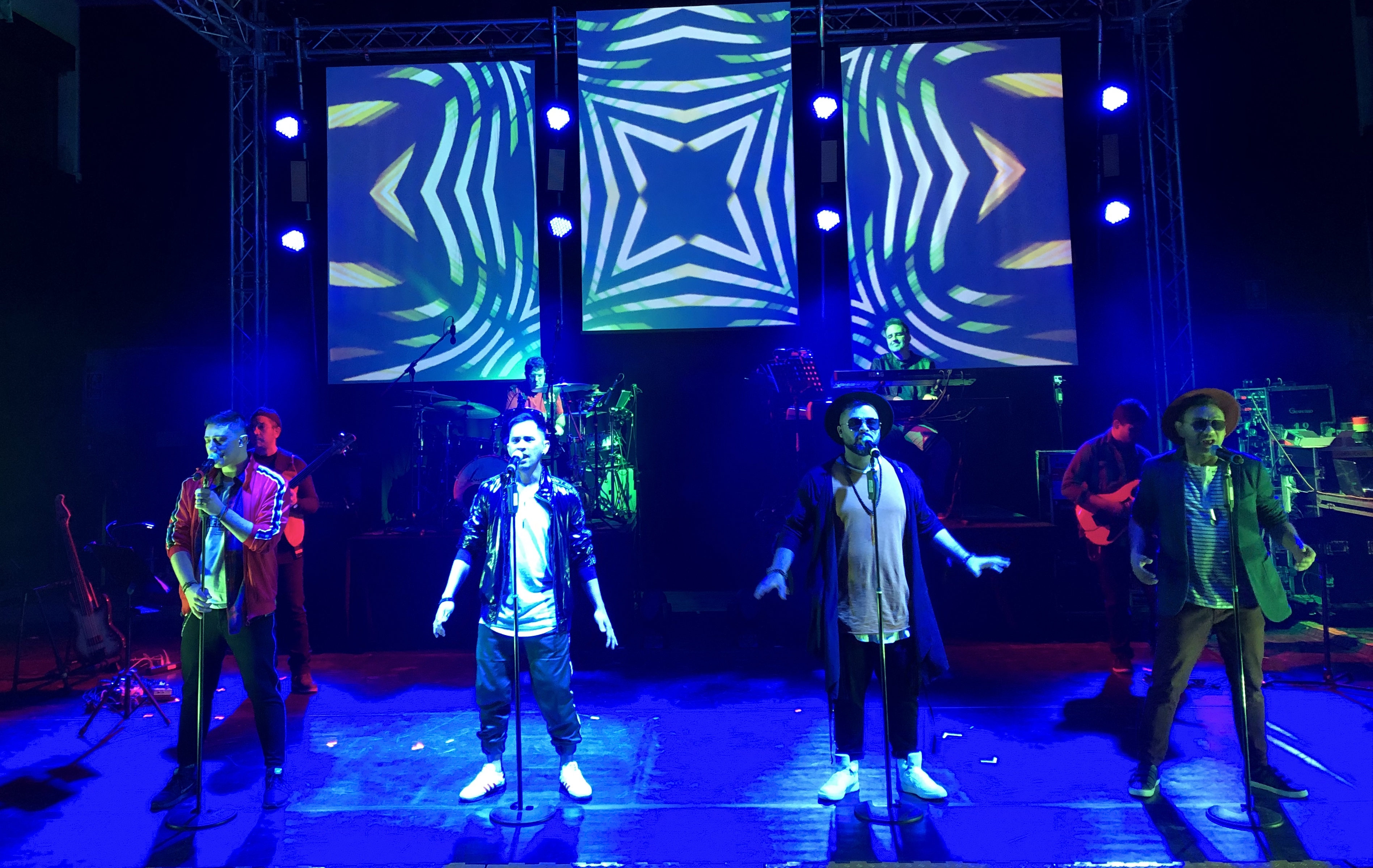 Meanwhile, we will continue with courses in the little town of Loppiano, sharing experiences, training and art. From October 15th to 17th we will examine in depth light design, a course intended for people interested in expanding their knowledge of the use of light and colour. In addition, to support young emerging artists, we have started co-productions. The first is Stabat in Silentium, the staging of a play by the young writer Francesco Bertolini. This play is the result of a profound experience of solidarity that emerged after the earthquake in Amatrice (Italy). “How can one still believe in God after an earthquake?” is the “uncomfortable” question which is the starting point of this work. The protagonists are the young victims, but also the volunteers who leave their quiet life to go where tragedy has occurred.
Meanwhile, we will continue with courses in the little town of Loppiano, sharing experiences, training and art. From October 15th to 17th we will examine in depth light design, a course intended for people interested in expanding their knowledge of the use of light and colour. In addition, to support young emerging artists, we have started co-productions. The first is Stabat in Silentium, the staging of a play by the young writer Francesco Bertolini. This play is the result of a profound experience of solidarity that emerged after the earthquake in Amatrice (Italy). “How can one still believe in God after an earthquake?” is the “uncomfortable” question which is the starting point of this work. The protagonists are the young victims, but also the volunteers who leave their quiet life to go where tragedy has occurred.
Anna Lisa Innocenti
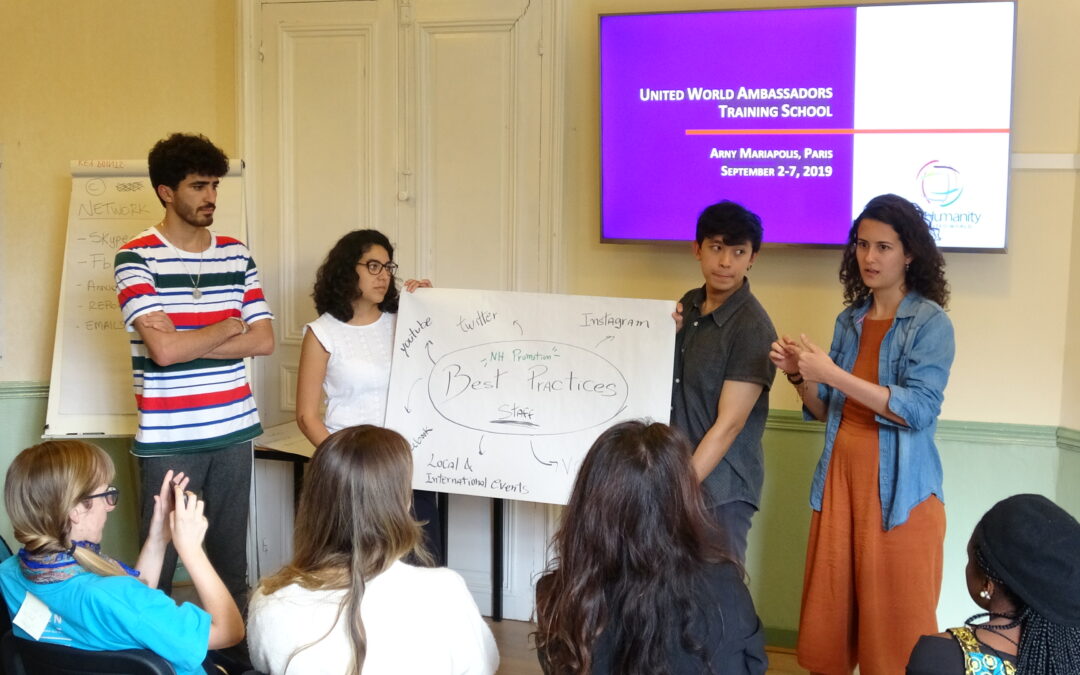
Sep 25, 2019 | Non categorizzato
At the Mariapolis in Arny, 35km south of Paris, the first “Ambassadors of a United World” course was held from 2–7 September. There were 16 young people from 14 countries who participated. 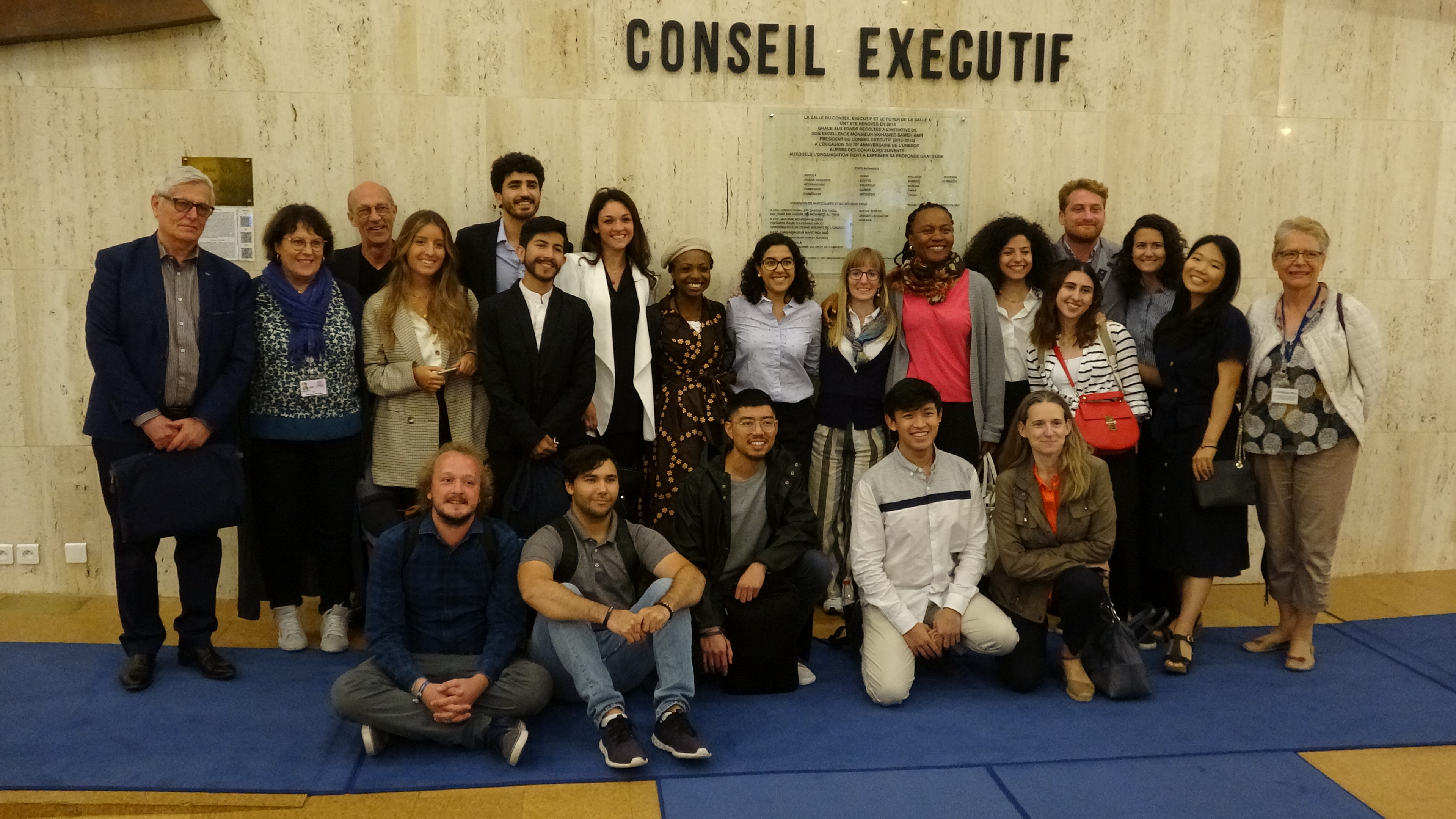 “Better Together” was the catchphrase that guided them. The programme was sponsored by New Humanity, an international non-profit organisation, which is an offshoot of the Focolare Movement and takes its inspiration from the spirit and values behind it. The goal was to strengthen the expertise of a group of young change makers, peace builders and community leaders, training them in the culture of unity, peace and fraternity, in order for them to become true “ambassadors” of a united world, capable of being spokespeople for the NGO nationally and internationally. The 16 who participated were from Belgium, Brazil, Cameroon, Colombia, South Korea, Ecuador, the Philippines, Kenya, Iraq, Italy, Lebanon, Mexico, Nigeria, Spain and the U.S. “This was New Humanity’s first training course,” said Chantal Grevin, New Humanity’s main delegate at UNESCO in Paris. “It was an effective experience that allowed us, in just one week, to give them the necessary skills to become active workers in our NGO.”
“Better Together” was the catchphrase that guided them. The programme was sponsored by New Humanity, an international non-profit organisation, which is an offshoot of the Focolare Movement and takes its inspiration from the spirit and values behind it. The goal was to strengthen the expertise of a group of young change makers, peace builders and community leaders, training them in the culture of unity, peace and fraternity, in order for them to become true “ambassadors” of a united world, capable of being spokespeople for the NGO nationally and internationally. The 16 who participated were from Belgium, Brazil, Cameroon, Colombia, South Korea, Ecuador, the Philippines, Kenya, Iraq, Italy, Lebanon, Mexico, Nigeria, Spain and the U.S. “This was New Humanity’s first training course,” said Chantal Grevin, New Humanity’s main delegate at UNESCO in Paris. “It was an effective experience that allowed us, in just one week, to give them the necessary skills to become active workers in our NGO.” 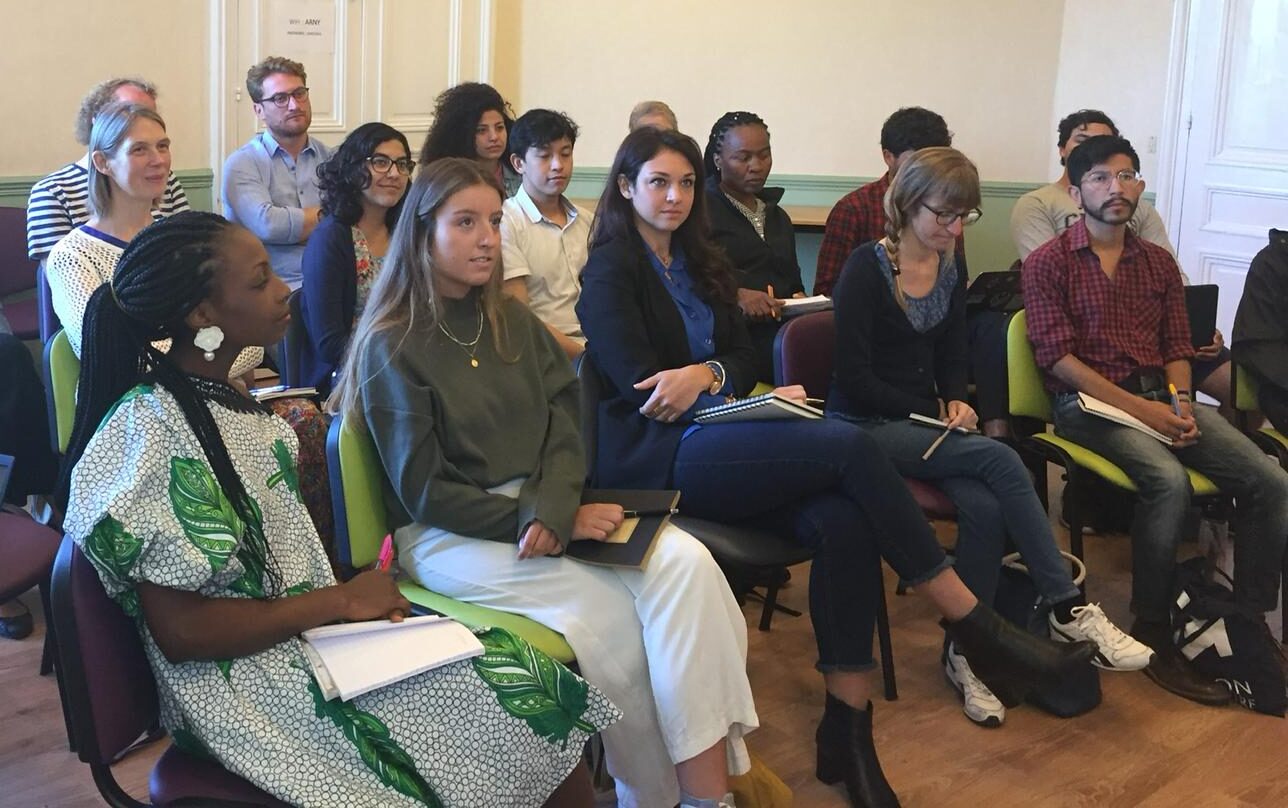 “We talked about what we mean by a ‘united world’, what peace, human rights are, and as a result what we mean by ‘person’”, explained Marco Desalvo, the NGO’s president. “We made an effort to translate all the best practices that our young people promote each day in the world, into a language that can inspire the international institutions, to spread the spirit of universal fraternity in every area of society at every level, just as the Universal Declaration of Human Rights proclaims.” The young ambassadors were welcomed by UNESCO officials from the humanities and social sciences (youth branch) and the education sector (global citizenship and culture of peace). “An open and free dialogue sprang up, allowing these delegates to discover New Humanity’s activities in a better way, through experiences from the young ambassadors, who were able to act as one, seeing all they had learned in recent days and their positive experiences of global citizenship,” added Grevin. Each young person was given the possibility of personally meeting the UNESCO delegate from their country and express their vision regarding the huge challenges of peace, the environment and fraternity.
“We talked about what we mean by a ‘united world’, what peace, human rights are, and as a result what we mean by ‘person’”, explained Marco Desalvo, the NGO’s president. “We made an effort to translate all the best practices that our young people promote each day in the world, into a language that can inspire the international institutions, to spread the spirit of universal fraternity in every area of society at every level, just as the Universal Declaration of Human Rights proclaims.” The young ambassadors were welcomed by UNESCO officials from the humanities and social sciences (youth branch) and the education sector (global citizenship and culture of peace). “An open and free dialogue sprang up, allowing these delegates to discover New Humanity’s activities in a better way, through experiences from the young ambassadors, who were able to act as one, seeing all they had learned in recent days and their positive experiences of global citizenship,” added Grevin. Each young person was given the possibility of personally meeting the UNESCO delegate from their country and express their vision regarding the huge challenges of peace, the environment and fraternity. 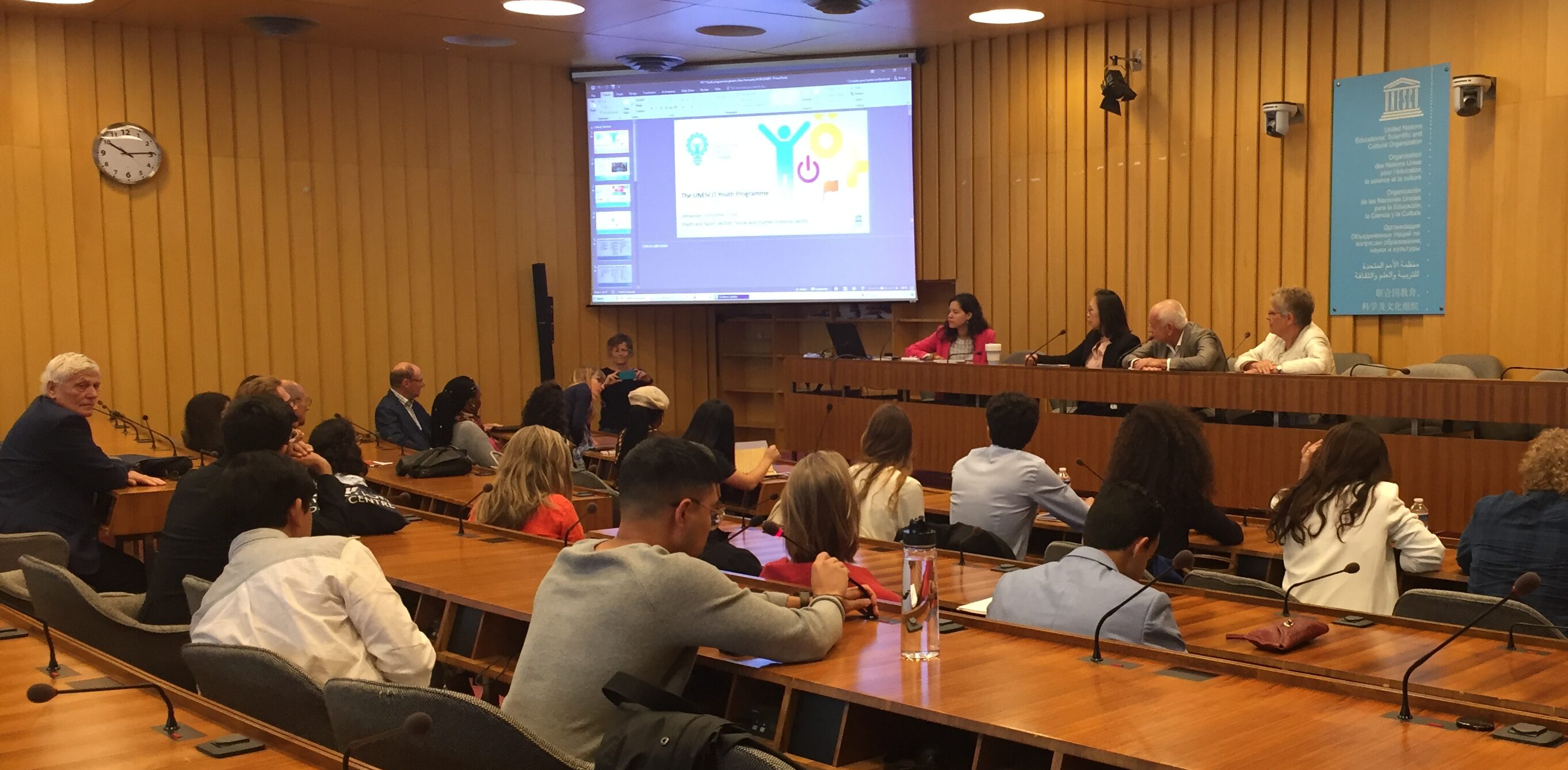 During the training course, the young people also had the opportunity to meet and speak with Monsignor Follo, a permanent observer to the Holy See, and Marie Claude Machon, Philippe Beaussant and Patrick Gallaud, who are the president, vice president and ex-president respectively of the liaison committee between NGOs and UNESCO. “Thanks to this course I learned so much about the United Nations system and NGO activities worldwide”, said Luciana, an Italian lawyer, at the conclusion of the experience. “Yet above all I rediscovered the true motivators that drove me towards this world. As an ambassador of New Humanity, I would like to promote the idea that supporting each other can make a great difference in creating a more united world. I understood that small
During the training course, the young people also had the opportunity to meet and speak with Monsignor Follo, a permanent observer to the Holy See, and Marie Claude Machon, Philippe Beaussant and Patrick Gallaud, who are the president, vice president and ex-president respectively of the liaison committee between NGOs and UNESCO. “Thanks to this course I learned so much about the United Nations system and NGO activities worldwide”, said Luciana, an Italian lawyer, at the conclusion of the experience. “Yet above all I rediscovered the true motivators that drove me towards this world. As an ambassador of New Humanity, I would like to promote the idea that supporting each other can make a great difference in creating a more united world. I understood that small 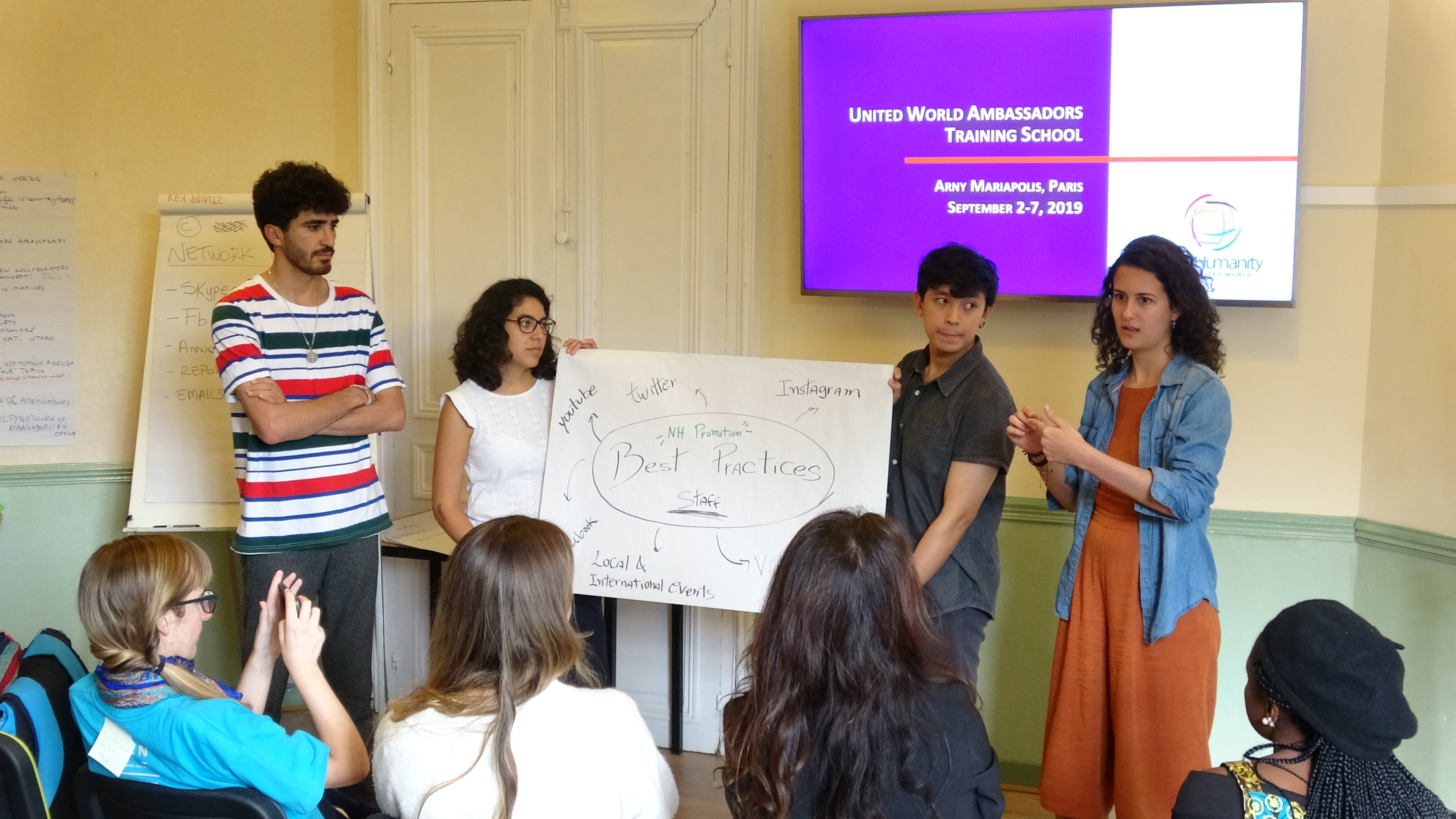 gestures can have a great impact on people’s wellbeing. This is why I feel so privileged to be a part of this fantastic project!” Pascal, who is Lebanese, shared: “When I first arrived, I was discouraged at not being able to find solutions for my own country. Then I found courage and hope, and I understood that we can persevere, we can truly work to reach a united world. I know it will happen! I am quite happy to be going back to my country and start working.” And Noè, from Mexico, said: “I arrived here with my friend Josef from the U.S. We live just a few kilometres from the border separating our countries. We are already working together on projects to help migrants. When we go back, we’ll be able to put into practice what we learned here.”
gestures can have a great impact on people’s wellbeing. This is why I feel so privileged to be a part of this fantastic project!” Pascal, who is Lebanese, shared: “When I first arrived, I was discouraged at not being able to find solutions for my own country. Then I found courage and hope, and I understood that we can persevere, we can truly work to reach a united world. I know it will happen! I am quite happy to be going back to my country and start working.” And Noè, from Mexico, said: “I arrived here with my friend Josef from the U.S. We live just a few kilometres from the border separating our countries. We are already working together on projects to help migrants. When we go back, we’ll be able to put into practice what we learned here.”
Tamara Pastorelli


 I was meeting many of these people for the first time, as they arrived at the Focolare’s “Fiore Centre” in Lima, Peru, which is active in receiving migrants during the current situation. I listened to them explain why they had left their own country, with what suffering, often going through the anguish of leaving a spouse, children or elderly parents behind, their efforts – often futile – to help those relatives by sending money back. They spoke of their loneliness, their experiences of rejection and discrimination, of being condemned by local people for ‘stealing our jobs’, of continually being regarded with distrust and suspicion. They helped me understand the Pope’s message from a new perspective and to recognise its importance more clearly. I started to see what lies behind the so-called migrant phenomenon. According to statistics, 70.8 million people have been forced to flee their countries around the world, of these nearly 26 million are refugees. It’s a shocking number. Pope Francis concentrates the response to the migrant challenge into four verbs: welcome, protect, promote and integrate. They do not apply only to migrants and refugees. They apply to everyone, as the Pope goes on to explain, “the Church’s mission( is) to all those living in the existential peripheries” including “migrants, especially those who are most vulnerable”.
I was meeting many of these people for the first time, as they arrived at the Focolare’s “Fiore Centre” in Lima, Peru, which is active in receiving migrants during the current situation. I listened to them explain why they had left their own country, with what suffering, often going through the anguish of leaving a spouse, children or elderly parents behind, their efforts – often futile – to help those relatives by sending money back. They spoke of their loneliness, their experiences of rejection and discrimination, of being condemned by local people for ‘stealing our jobs’, of continually being regarded with distrust and suspicion. They helped me understand the Pope’s message from a new perspective and to recognise its importance more clearly. I started to see what lies behind the so-called migrant phenomenon. According to statistics, 70.8 million people have been forced to flee their countries around the world, of these nearly 26 million are refugees. It’s a shocking number. Pope Francis concentrates the response to the migrant challenge into four verbs: welcome, protect, promote and integrate. They do not apply only to migrants and refugees. They apply to everyone, as the Pope goes on to explain, “the Church’s mission( is) to all those living in the existential peripheries” including “migrants, especially those who are most vulnerable”. 

 “From Argentina, we decided to move to Lámud, Peru,” said Javier, “the town where Jenny was born, in what is called ‘Ceja de Selva’ (half jungle, half mountain). It’s located near to where the great Marañón and Amazon rivers begin. We wanted to be close to her parents, who are now elderly and in delicate health.” Javier is Argentinian. He met Jenny while she was studying in Rosario, Argentina. They have three daughters, aged 2, 4, and 17. They sold “what little they had” and left for the Amazonas, Peru’s poorest region, 1,600 kilometers from Lima and 14 hours from the nearest Focolare house. Moving from a big city like Rosario to a town with 2,500 residents at 2,300 meters elevation was a big change for the family. “We knew we wouldn’t be making a return trip,” he said. Moving from a big city like Rosario to a town with 2,500 residents, at 2,300 meters elevation, was a big change for the family, and it was especially challenging for Javier. At a young age, both Javier and Jenny met the Focolare’s spirituality of unity; they now wanted to live the Gospel as a family. That’s why “their biggest concern” was to get to a place where they “would be alone,” with no one with whom to share this ideal of unity. They decided to do everything they could to bear witness and proclaim the Gospel with their lives, so that even in the Amazon, a seed of the spirituality of unity would be planted. They decided to live the commandment of reciprocal love so that Jesus would always be spiritually present in their family, according to his promise: “Where two or three are gathered in my name, there am I in their midst” (Mt 18:20). With the conviction that, as Chiara Lubich once said, “one of the fruits of Jesus in the midst is giving birth to a community,” they left for Peru. A few days after arriving, the local bishop visited their town. They introduced themselves as a “Focolare family.” The bishop blessed them and encouraged them to continue in their commitment. They began by touring the periphery of the village by visiting “the poorest of the poor.” They went to people’s houses—if you want to call them that—where they found elderly people who “didn’t even have a decent bed to die in, such was their poverty!” They met many families and children who could afford to eat only once a day. “We would bring them something to eat, hug them, look them in the eye, and give them a word of encouragement,” said Jenny. Sometimes, they would stay two or three days with them, “sharing their pain, their poverty, their brief joys and hopes.”
“From Argentina, we decided to move to Lámud, Peru,” said Javier, “the town where Jenny was born, in what is called ‘Ceja de Selva’ (half jungle, half mountain). It’s located near to where the great Marañón and Amazon rivers begin. We wanted to be close to her parents, who are now elderly and in delicate health.” Javier is Argentinian. He met Jenny while she was studying in Rosario, Argentina. They have three daughters, aged 2, 4, and 17. They sold “what little they had” and left for the Amazonas, Peru’s poorest region, 1,600 kilometers from Lima and 14 hours from the nearest Focolare house. Moving from a big city like Rosario to a town with 2,500 residents at 2,300 meters elevation was a big change for the family. “We knew we wouldn’t be making a return trip,” he said. Moving from a big city like Rosario to a town with 2,500 residents, at 2,300 meters elevation, was a big change for the family, and it was especially challenging for Javier. At a young age, both Javier and Jenny met the Focolare’s spirituality of unity; they now wanted to live the Gospel as a family. That’s why “their biggest concern” was to get to a place where they “would be alone,” with no one with whom to share this ideal of unity. They decided to do everything they could to bear witness and proclaim the Gospel with their lives, so that even in the Amazon, a seed of the spirituality of unity would be planted. They decided to live the commandment of reciprocal love so that Jesus would always be spiritually present in their family, according to his promise: “Where two or three are gathered in my name, there am I in their midst” (Mt 18:20). With the conviction that, as Chiara Lubich once said, “one of the fruits of Jesus in the midst is giving birth to a community,” they left for Peru. A few days after arriving, the local bishop visited their town. They introduced themselves as a “Focolare family.” The bishop blessed them and encouraged them to continue in their commitment. They began by touring the periphery of the village by visiting “the poorest of the poor.” They went to people’s houses—if you want to call them that—where they found elderly people who “didn’t even have a decent bed to die in, such was their poverty!” They met many families and children who could afford to eat only once a day. “We would bring them something to eat, hug them, look them in the eye, and give them a word of encouragement,” said Jenny. Sometimes, they would stay two or three days with them, “sharing their pain, their poverty, their brief joys and hopes.”  Hopeful that they could help bring to life a small community in their town, they began to organize meetings of the “Word of Life,” but with no success. They changed tactics several times. “We never got discouraged,” said Javier. “We knew that Jesus has his time and the important thing was to stay in the game.” They invited their neighbors again to meet about the Word of God, and gradually some people joined, including some of the mothers of the children in kindergarten with their daughters. They also organized a children’s program. This felt like the beginning to them, a small calling. Then the parish priest asked them to take on the family catechesis of the village and ten other surrounding villages, including some located two hours away. Recently welcomed their first visit from the Focolare community of Talara, a city located 650 kilometers and 12 hours by car from Lámud. It was a visit that marked them in a special way, “a before and after in the life of our community.” Jenny and Javier share in the joy of those who have found their place in the world. “We are few, but something was born!” they say. “We don’t want to set expectations, but we believe that Jesus has a soft spot in his heart for the Amazon, for the poorest of the poor. This is so perhaps because he was also born among the poor, and he stayed with them. We don’t know the roads he wants to take us, but they’re the only ones on which we want to travel! Like Him, we want to give our lives for our people.”
Hopeful that they could help bring to life a small community in their town, they began to organize meetings of the “Word of Life,” but with no success. They changed tactics several times. “We never got discouraged,” said Javier. “We knew that Jesus has his time and the important thing was to stay in the game.” They invited their neighbors again to meet about the Word of God, and gradually some people joined, including some of the mothers of the children in kindergarten with their daughters. They also organized a children’s program. This felt like the beginning to them, a small calling. Then the parish priest asked them to take on the family catechesis of the village and ten other surrounding villages, including some located two hours away. Recently welcomed their first visit from the Focolare community of Talara, a city located 650 kilometers and 12 hours by car from Lámud. It was a visit that marked them in a special way, “a before and after in the life of our community.” Jenny and Javier share in the joy of those who have found their place in the world. “We are few, but something was born!” they say. “We don’t want to set expectations, but we believe that Jesus has a soft spot in his heart for the Amazon, for the poorest of the poor. This is so perhaps because he was also born among the poor, and he stayed with them. We don’t know the roads he wants to take us, but they’re the only ones on which we want to travel! Like Him, we want to give our lives for our people.” 
 Finally we made it! An extended communion among the participants of the annual meeting between the delegates of the Focolare Movement worldwide and the General Council, was held from September 14th to 28th 2019 in Rocca di Papa. It highlighted the principle that had got the conference underway and that will be the guiding principle for the entire Movement in the coming year: everything that is done in the name of the Movement in the ecclesial, social or cultural fields, as an activity for children or adults, families or those engaged in politics, makes sense only if it is characterized and guided by the presence of Jesus in the midst of those who love one other as He taught. This does not mean that the Focolare is becoming entirely spiritual. In fact, the first part of the meeting was dedicated to gathering the life of the Movement. With the distinctiveness of the different ecclesial, political and cultural environments in which the Movement is located, social and educational projects were presented, as well as the commitment to refugees in areas receiving little media coverage, artistic initiatives and actions promoting human dignity.
Finally we made it! An extended communion among the participants of the annual meeting between the delegates of the Focolare Movement worldwide and the General Council, was held from September 14th to 28th 2019 in Rocca di Papa. It highlighted the principle that had got the conference underway and that will be the guiding principle for the entire Movement in the coming year: everything that is done in the name of the Movement in the ecclesial, social or cultural fields, as an activity for children or adults, families or those engaged in politics, makes sense only if it is characterized and guided by the presence of Jesus in the midst of those who love one other as He taught. This does not mean that the Focolare is becoming entirely spiritual. In fact, the first part of the meeting was dedicated to gathering the life of the Movement. With the distinctiveness of the different ecclesial, political and cultural environments in which the Movement is located, social and educational projects were presented, as well as the commitment to refugees in areas receiving little media coverage, artistic initiatives and actions promoting human dignity.  During this exchange it was clear that the reform, which has been underway for some years under the title “New Set Up”, is bearing its first fruits. In many parts of the world, leaner structures seem to release new creative energy. New forms of proclamation and evangelization have developed, synergies between the various branches of the Movement and with other ecclesial and lay realities. There is also a new balance being achieved in the relationship between central government and geographical areas, that is, between global sensitivities and local action. While respecting the diversity present within the Movement – such as those of cultures, confessions, strengths and resources- in this balance it has been possible to identify together the priorities to be addressed in the coming year 2019/2020.
During this exchange it was clear that the reform, which has been underway for some years under the title “New Set Up”, is bearing its first fruits. In many parts of the world, leaner structures seem to release new creative energy. New forms of proclamation and evangelization have developed, synergies between the various branches of the Movement and with other ecclesial and lay realities. There is also a new balance being achieved in the relationship between central government and geographical areas, that is, between global sensitivities and local action. While respecting the diversity present within the Movement – such as those of cultures, confessions, strengths and resources- in this balance it has been possible to identify together the priorities to be addressed in the coming year 2019/2020.  Under the motto “In time for Peace” the Movement will commit itself in the fields of human rights, peace, legality and justice following a pathway proposed by young people. Efforts will be made to try and involve other people and institutions to take concrete and important steps in these fields. The centenary of the birth of Chiara Lubich will take centre stage in the coming months. The activities that begin on December 7th , 2019 with the title “Celebrate to meet” want to offer the possibility of a living encounter with the foundress and her charism. Finally, 2020 will also be marked by the General Assembly of the Movement , which takes place every six years, offering new perspectives. “But everything we do has a single purpose” – said Maria Voce, President of the Focolare, at the end of this meeting. “We want to transform the world, giving visibility to the presence of Christ in it, through the mutual love among us”. This is – so to speak – the typical “soft skill” of the Focolare, its “transversal expertise” . It is not produced with methodologies and programming, but it is the foundation of everything , the starting and finishing line.
Under the motto “In time for Peace” the Movement will commit itself in the fields of human rights, peace, legality and justice following a pathway proposed by young people. Efforts will be made to try and involve other people and institutions to take concrete and important steps in these fields. The centenary of the birth of Chiara Lubich will take centre stage in the coming months. The activities that begin on December 7th , 2019 with the title “Celebrate to meet” want to offer the possibility of a living encounter with the foundress and her charism. Finally, 2020 will also be marked by the General Assembly of the Movement , which takes place every six years, offering new perspectives. “But everything we do has a single purpose” – said Maria Voce, President of the Focolare, at the end of this meeting. “We want to transform the world, giving visibility to the presence of Christ in it, through the mutual love among us”. This is – so to speak – the typical “soft skill” of the Focolare, its “transversal expertise” . It is not produced with methodologies and programming, but it is the foundation of everything , the starting and finishing line. 
 While the settings may be different, the experience is the same: the Mariapolis is the typical expression of the Focolare Movement where those who participate in these gatherings – usually held in the summer – are invited to experience a few days of utopia: a society based on living the reciprocal love of the Gospel. A very big European Mariapolis was held in Fiera di Primiero this summer where the very first Mariapolis took place sixty years earlier. It ran in four stages, each lasting a week. In many other parts of the world the Mariapoli attracted people from very different backgrounds. This year there were 235 Mariapoli around the world with bringing together around 46,000 people. Our editorial team has received letters and reports from Wales, Vietnam, Peru, Canada, Finland, Italy, Bulgaria and Brazil.
While the settings may be different, the experience is the same: the Mariapolis is the typical expression of the Focolare Movement where those who participate in these gatherings – usually held in the summer – are invited to experience a few days of utopia: a society based on living the reciprocal love of the Gospel. A very big European Mariapolis was held in Fiera di Primiero this summer where the very first Mariapolis took place sixty years earlier. It ran in four stages, each lasting a week. In many other parts of the world the Mariapoli attracted people from very different backgrounds. This year there were 235 Mariapoli around the world with bringing together around 46,000 people. Our editorial team has received letters and reports from Wales, Vietnam, Peru, Canada, Finland, Italy, Bulgaria and Brazil.  In Turkey the Mariapolis took place in Şile, a little town on the Black Sea near Istanbul, a resort that provided a holiday atmosphere which everyone appreciated. The 70 participants came from Ankara, Iskenderun, Izmir as well as other countries. The main theme – personal and collective sanctity – was developed by presenting some of Turkey’s best-known saints: St. John Chrysostom, St. Ephrem, St. Helena and St. Thecla whose lives have had a great influence on the Church of the early times. In Kerrville, Texas (USA), the theme of the Holy Spirit and the Church was explored which has guided the life of the Focolare Movement all over the world this year. Out of the 350 people present, 100 were participating for the first time in a Mariapolis perhaps because studying the Church was particularly attractive to people at a time that has been marked by so many scandals and sufferings. The same subject, presented with an focus on ecumenism, was at the heart of the Mariapolis in Sweden held in Marielund-Stockholm with Lutherans and Catholics taking part. Two Buddhists as well as those who do not profess a
In Turkey the Mariapolis took place in Şile, a little town on the Black Sea near Istanbul, a resort that provided a holiday atmosphere which everyone appreciated. The 70 participants came from Ankara, Iskenderun, Izmir as well as other countries. The main theme – personal and collective sanctity – was developed by presenting some of Turkey’s best-known saints: St. John Chrysostom, St. Ephrem, St. Helena and St. Thecla whose lives have had a great influence on the Church of the early times. In Kerrville, Texas (USA), the theme of the Holy Spirit and the Church was explored which has guided the life of the Focolare Movement all over the world this year. Out of the 350 people present, 100 were participating for the first time in a Mariapolis perhaps because studying the Church was particularly attractive to people at a time that has been marked by so many scandals and sufferings. The same subject, presented with an focus on ecumenism, was at the heart of the Mariapolis in Sweden held in Marielund-Stockholm with Lutherans and Catholics taking part. Two Buddhists as well as those who do not profess a  specific faith were also present. The participants came from different cities in Sweden and a good representation from Norway. Despite the diversity it was possible to deepen the idea of “the Holy Spirit as the one who is the Church’s vital energy and who gives each person the particular grace to realize their own calling through the unity of all the members of the mystical body of Christ”, in their own words. The participation of newer generations to the program gave the Mariapolis in Lviv, Ukraine, a joyful touch. Young adults, teenagers and children were entrusted with the preparation and running of an entire day which they did in a lively and engaging way. At the start of each day it was the children who “taught” the adults by telling them how they had lived the words of the Gospel of the previous day. The Mariapolis in Penang, Malaysia, was characterized by the diversity of languages, cultures, ethnic backgrounds and people travelling great distances with participants from Singapore, for example, travelling 700 km. “The effort made to keep mutual love alive among us” – they wrote – “and thus give space to the presence of Jesus in our midst, the commitment to face and overcome difficulties and the willingness to give up one’s own ideas, made this undertaking possible”.
specific faith were also present. The participants came from different cities in Sweden and a good representation from Norway. Despite the diversity it was possible to deepen the idea of “the Holy Spirit as the one who is the Church’s vital energy and who gives each person the particular grace to realize their own calling through the unity of all the members of the mystical body of Christ”, in their own words. The participation of newer generations to the program gave the Mariapolis in Lviv, Ukraine, a joyful touch. Young adults, teenagers and children were entrusted with the preparation and running of an entire day which they did in a lively and engaging way. At the start of each day it was the children who “taught” the adults by telling them how they had lived the words of the Gospel of the previous day. The Mariapolis in Penang, Malaysia, was characterized by the diversity of languages, cultures, ethnic backgrounds and people travelling great distances with participants from Singapore, for example, travelling 700 km. “The effort made to keep mutual love alive among us” – they wrote – “and thus give space to the presence of Jesus in our midst, the commitment to face and overcome difficulties and the willingness to give up one’s own ideas, made this undertaking possible”. 
 After more than fifty years of life theirs is an artistic proposition capable of continuous renewal. At the same time, they keep the compass fixed on some key points: a life lived under the banner of fraternity, a collaborative production between artists of various nationalities that speaks of unity between peoples and nations, a message that proposes a culture of giving and sharing – attentive to the challenges of our planet. This is Gen Rosso an international music group, made up of musicians and technicians of different vocations from Europe, Asia and Latin America. Recently their “Life” tour became an album with eighteen tracks chosen from the songs recorded by Gen Rosso over the years. We talk about it with one of the group, Michele Sole. – On July 1st your live album from the “LIFE” Tour was released. How was this new album conceived and what are its characteristics? From the autumn of 2018 until today we have had some beautiful concerts all over Italy with our production “LIFE” and since the audiences were enthusiastic, like we were ourselves, from there we had the desire to create a cd ‘Life – live’. Once the recordings made on stage were re-created, we mixed them trying to keep all the energy and emotion that we breathe in our concerts. You can hear the audience singing with us, their applause and their voices, giving the listener the feeling of being right there with us on stage. In short, a real live recording! –
After more than fifty years of life theirs is an artistic proposition capable of continuous renewal. At the same time, they keep the compass fixed on some key points: a life lived under the banner of fraternity, a collaborative production between artists of various nationalities that speaks of unity between peoples and nations, a message that proposes a culture of giving and sharing – attentive to the challenges of our planet. This is Gen Rosso an international music group, made up of musicians and technicians of different vocations from Europe, Asia and Latin America. Recently their “Life” tour became an album with eighteen tracks chosen from the songs recorded by Gen Rosso over the years. We talk about it with one of the group, Michele Sole. – On July 1st your live album from the “LIFE” Tour was released. How was this new album conceived and what are its characteristics? From the autumn of 2018 until today we have had some beautiful concerts all over Italy with our production “LIFE” and since the audiences were enthusiastic, like we were ourselves, from there we had the desire to create a cd ‘Life – live’. Once the recordings made on stage were re-created, we mixed them trying to keep all the energy and emotion that we breathe in our concerts. You can hear the audience singing with us, their applause and their voices, giving the listener the feeling of being right there with us on stage. In short, a real live recording! –  Recently you have created, in the international little town of Loppiano where you are based the “Gen Rosso Music and Arts Village”. What is this and what are the objectives? The “Gen Rosso Music and Arts Village” will be held this year from December 27th 2019 until January 5th 2020, this will be the third edition. It is an artistic experience, the sharing of values from the perspective of the charism of unity. It involves young professionals and students, aged 18 and above, from different disciplines such as music, dance, singing, theatre. The teaching methodology is designed by Gen Rosso tutors together with teachers who have recognized artistic skills and experience. The program includes an in-depth study of specific themes from the art world, the exchange of experiences, creative spaces and practical workshops that will converge in a final performance. You can register at village@genrosso.com. The programme will start on December 27th 2019 and will end on January 5th 2020.
Recently you have created, in the international little town of Loppiano where you are based the “Gen Rosso Music and Arts Village”. What is this and what are the objectives? The “Gen Rosso Music and Arts Village” will be held this year from December 27th 2019 until January 5th 2020, this will be the third edition. It is an artistic experience, the sharing of values from the perspective of the charism of unity. It involves young professionals and students, aged 18 and above, from different disciplines such as music, dance, singing, theatre. The teaching methodology is designed by Gen Rosso tutors together with teachers who have recognized artistic skills and experience. The program includes an in-depth study of specific themes from the art world, the exchange of experiences, creative spaces and practical workshops that will converge in a final performance. You can register at village@genrosso.com. The programme will start on December 27th 2019 and will end on January 5th 2020.  – In your travels, you participate in events that promote peace and friendship between peoples and universal fraternity. Is there a recent one that you remember in particular and why? Yes, in the spring we had the joy of being in Jordan, thanks to “Caritas Jordan”, to carry out the project “Be the change” . We worked with hundreds of students from different social classes, different religions and different nationalities, It is a project to foster dialogue and promote a culture of peace and friendship, with the participants themselves being the promoters of a change in their lives and in their cities for a better future. – What are your plans and future appointments? First of all, we will resume the world tour with the concert “Life” along with educational projects and the inclusion on stage of young people prepared during various workshops. The tour will begin in Italy (September 28th in Venosa; October 12th in Piacenza; October 23rd and 24th in Acerra; October 26th in Prato, November 1st in Teano). Then an Asian tour in Indonesia for almost the entire month of November 2019.
– In your travels, you participate in events that promote peace and friendship between peoples and universal fraternity. Is there a recent one that you remember in particular and why? Yes, in the spring we had the joy of being in Jordan, thanks to “Caritas Jordan”, to carry out the project “Be the change” . We worked with hundreds of students from different social classes, different religions and different nationalities, It is a project to foster dialogue and promote a culture of peace and friendship, with the participants themselves being the promoters of a change in their lives and in their cities for a better future. – What are your plans and future appointments? First of all, we will resume the world tour with the concert “Life” along with educational projects and the inclusion on stage of young people prepared during various workshops. The tour will begin in Italy (September 28th in Venosa; October 12th in Piacenza; October 23rd and 24th in Acerra; October 26th in Prato, November 1st in Teano). Then an Asian tour in Indonesia for almost the entire month of November 2019.  Meanwhile, we will continue with courses in the little town of Loppiano, sharing experiences, training and art. From October 15th to 17th we will examine in depth light design, a course intended for people interested in expanding their knowledge of the use of light and colour. In addition, to support young emerging artists, we have started co-productions. The first is Stabat in Silentium, the staging of a play by the young writer Francesco Bertolini. This play is the result of a profound experience of solidarity that emerged after the earthquake in Amatrice (Italy). “How can one still believe in God after an earthquake?” is the “uncomfortable” question which is the starting point of this work. The protagonists are the young victims, but also the volunteers who leave their quiet life to go where tragedy has occurred.
Meanwhile, we will continue with courses in the little town of Loppiano, sharing experiences, training and art. From October 15th to 17th we will examine in depth light design, a course intended for people interested in expanding their knowledge of the use of light and colour. In addition, to support young emerging artists, we have started co-productions. The first is Stabat in Silentium, the staging of a play by the young writer Francesco Bertolini. This play is the result of a profound experience of solidarity that emerged after the earthquake in Amatrice (Italy). “How can one still believe in God after an earthquake?” is the “uncomfortable” question which is the starting point of this work. The protagonists are the young victims, but also the volunteers who leave their quiet life to go where tragedy has occurred. 
 “Better Together” was the catchphrase that guided them. The programme was sponsored by
“Better Together” was the catchphrase that guided them. The programme was sponsored by  “We talked about what we mean by a ‘united world’, what peace, human rights are, and as a result what we mean by ‘person’”, explained Marco Desalvo, the NGO’s president. “We made an effort to translate all the best practices that our young people promote each day in the world, into a language that can inspire the international institutions, to spread the spirit of universal fraternity in every area of society at every level, just as the Universal Declaration of Human Rights proclaims.” The young ambassadors were welcomed by UNESCO officials from the humanities and social sciences (youth branch) and the education sector (global citizenship and culture of peace). “An open and free dialogue sprang up, allowing these delegates to discover New Humanity’s activities in a better way, through experiences from the young ambassadors, who were able to act as one, seeing all they had learned in recent days and their positive experiences of global citizenship,” added Grevin. Each young person was given the possibility of personally meeting the UNESCO delegate from their country and express their vision regarding the huge challenges of peace, the environment and fraternity.
“We talked about what we mean by a ‘united world’, what peace, human rights are, and as a result what we mean by ‘person’”, explained Marco Desalvo, the NGO’s president. “We made an effort to translate all the best practices that our young people promote each day in the world, into a language that can inspire the international institutions, to spread the spirit of universal fraternity in every area of society at every level, just as the Universal Declaration of Human Rights proclaims.” The young ambassadors were welcomed by UNESCO officials from the humanities and social sciences (youth branch) and the education sector (global citizenship and culture of peace). “An open and free dialogue sprang up, allowing these delegates to discover New Humanity’s activities in a better way, through experiences from the young ambassadors, who were able to act as one, seeing all they had learned in recent days and their positive experiences of global citizenship,” added Grevin. Each young person was given the possibility of personally meeting the UNESCO delegate from their country and express their vision regarding the huge challenges of peace, the environment and fraternity.  During the training course, the young people also had the opportunity to meet and speak with Monsignor Follo, a permanent observer to the Holy See, and Marie Claude Machon, Philippe Beaussant and Patrick Gallaud, who are the president, vice president and ex-president respectively of the liaison committee between NGOs and UNESCO. “Thanks to this course I learned so much about the United Nations system and NGO activities worldwide”, said Luciana, an Italian lawyer, at the conclusion of the experience. “Yet above all I rediscovered the true motivators that drove me towards this world. As an ambassador of New Humanity, I would like to promote the idea that supporting each other can make a great difference in creating a more united world. I understood that small
During the training course, the young people also had the opportunity to meet and speak with Monsignor Follo, a permanent observer to the Holy See, and Marie Claude Machon, Philippe Beaussant and Patrick Gallaud, who are the president, vice president and ex-president respectively of the liaison committee between NGOs and UNESCO. “Thanks to this course I learned so much about the United Nations system and NGO activities worldwide”, said Luciana, an Italian lawyer, at the conclusion of the experience. “Yet above all I rediscovered the true motivators that drove me towards this world. As an ambassador of New Humanity, I would like to promote the idea that supporting each other can make a great difference in creating a more united world. I understood that small  gestures can have a great impact on people’s wellbeing. This is why I feel so privileged to be a part of this fantastic project!” Pascal, who is Lebanese, shared: “When I first arrived, I was discouraged at not being able to find solutions for my own country. Then I found courage and hope, and I understood that we can persevere, we can truly work to reach a united world. I know it will happen! I am quite happy to be going back to my country and start working.” And Noè, from Mexico, said: “I arrived here with my friend Josef from the U.S. We live just a few kilometres from the border separating our countries. We are already working together on projects to help migrants. When we go back, we’ll be able to put into practice what we learned here.”
gestures can have a great impact on people’s wellbeing. This is why I feel so privileged to be a part of this fantastic project!” Pascal, who is Lebanese, shared: “When I first arrived, I was discouraged at not being able to find solutions for my own country. Then I found courage and hope, and I understood that we can persevere, we can truly work to reach a united world. I know it will happen! I am quite happy to be going back to my country and start working.” And Noè, from Mexico, said: “I arrived here with my friend Josef from the U.S. We live just a few kilometres from the border separating our countries. We are already working together on projects to help migrants. When we go back, we’ll be able to put into practice what we learned here.”